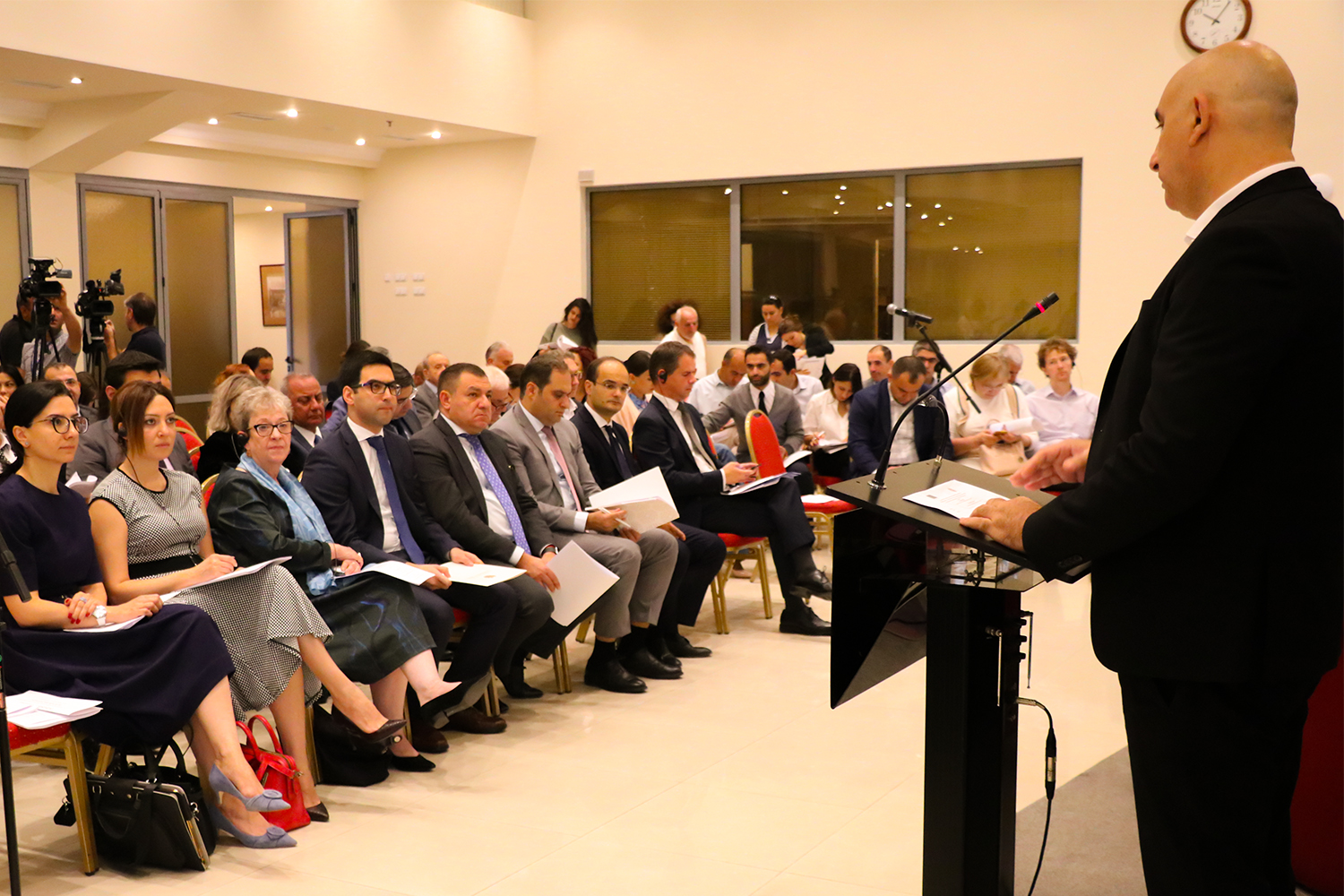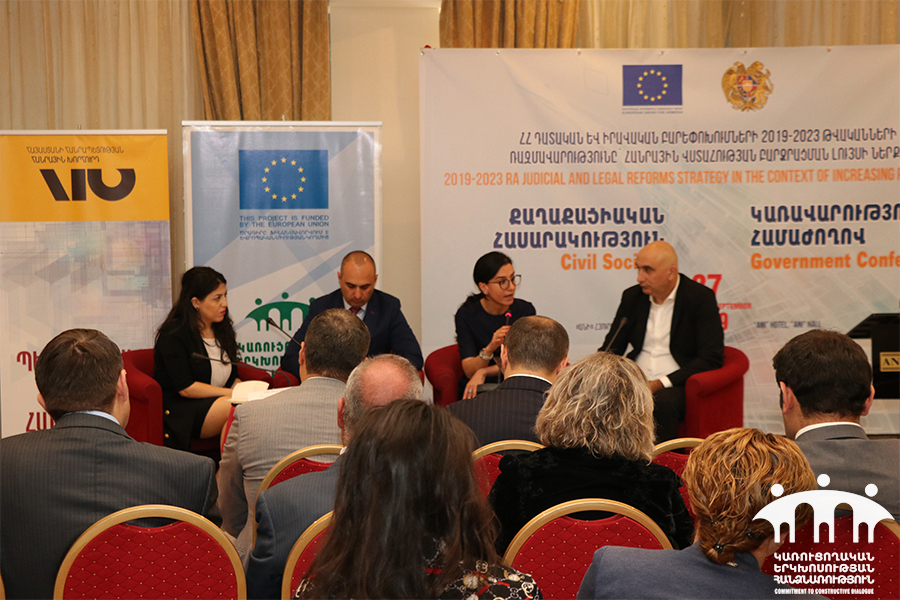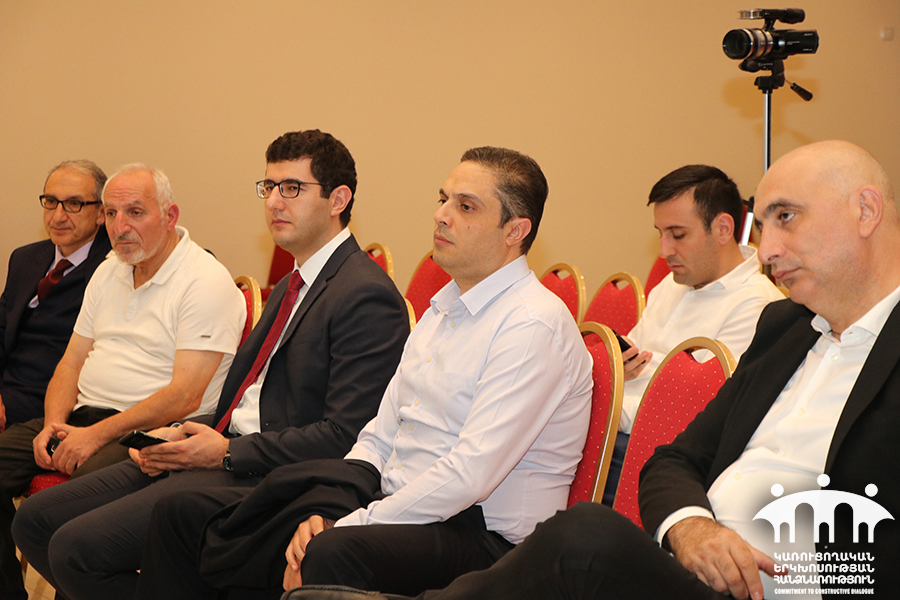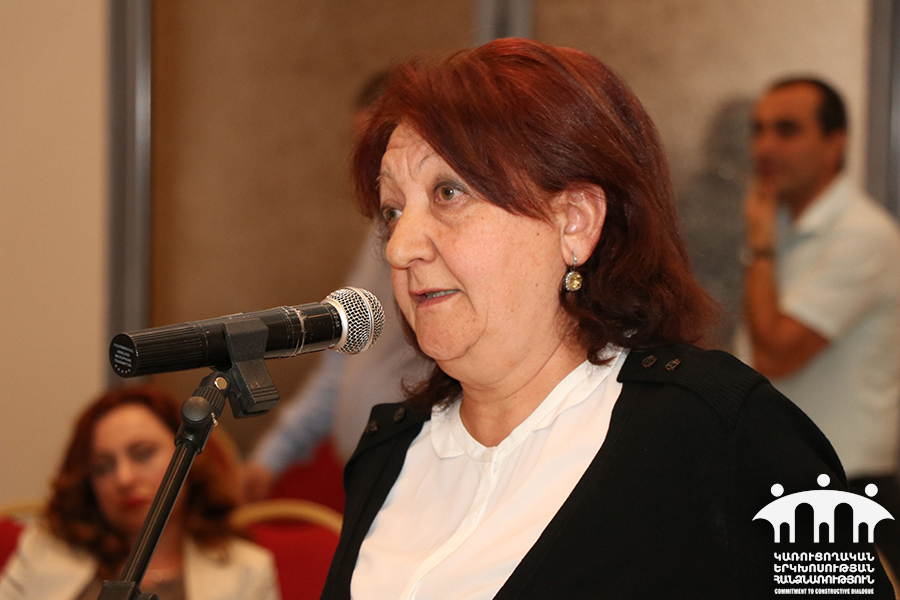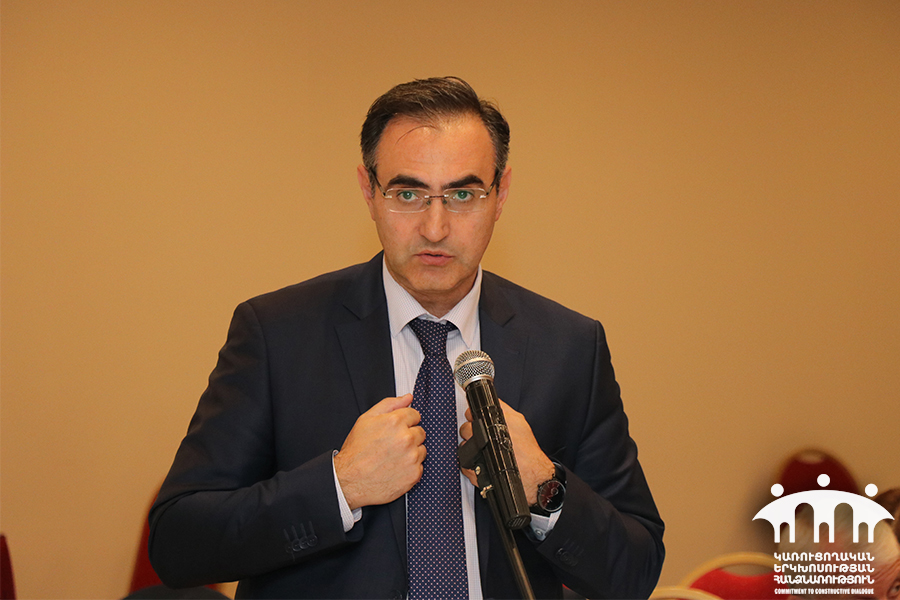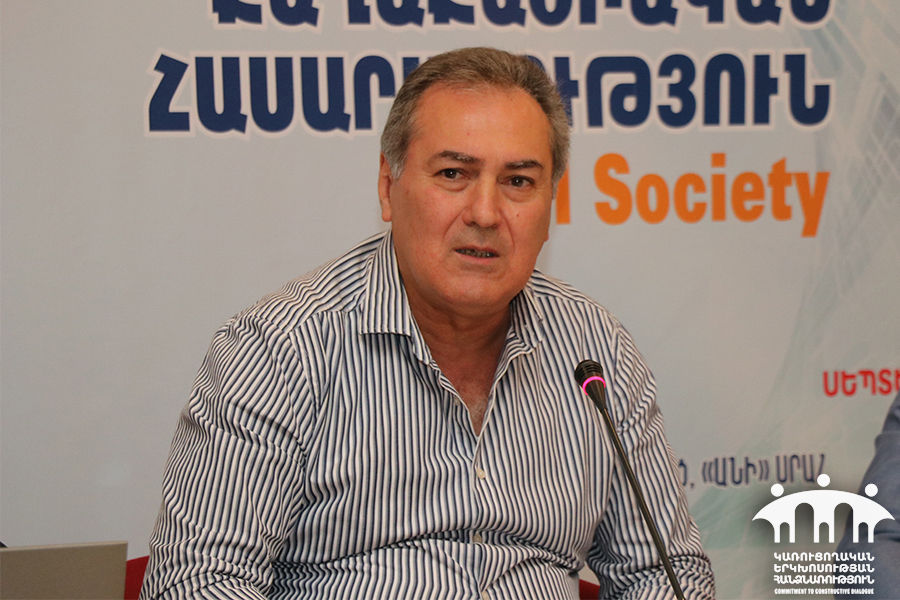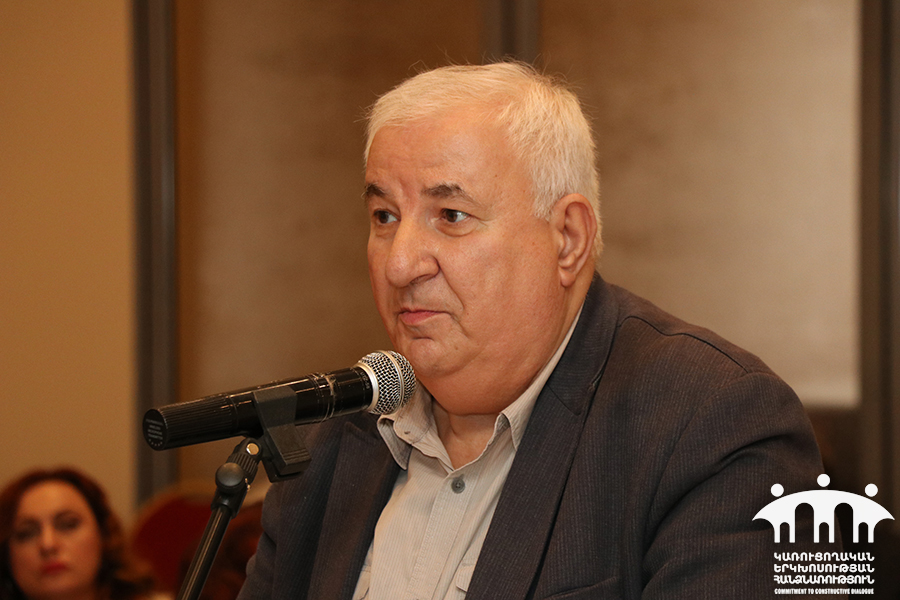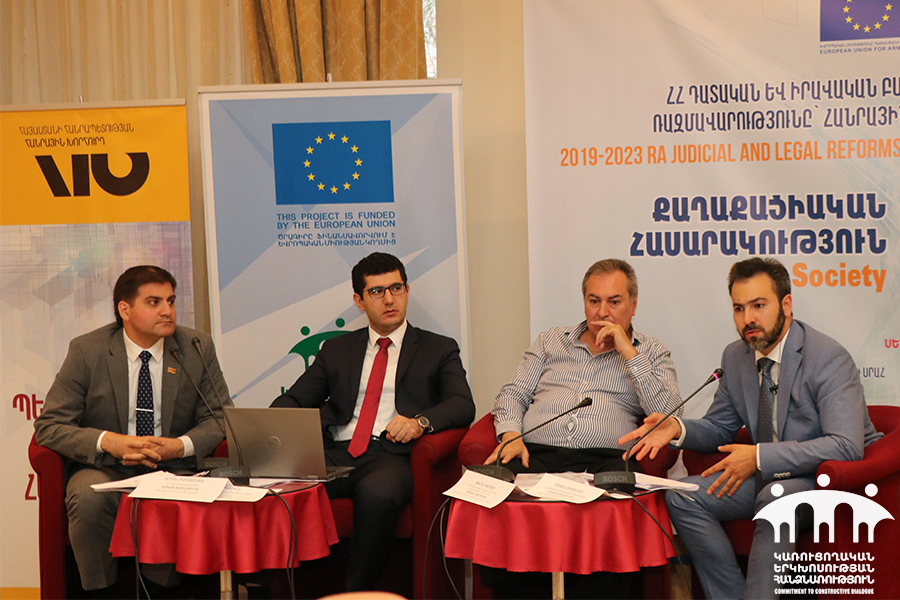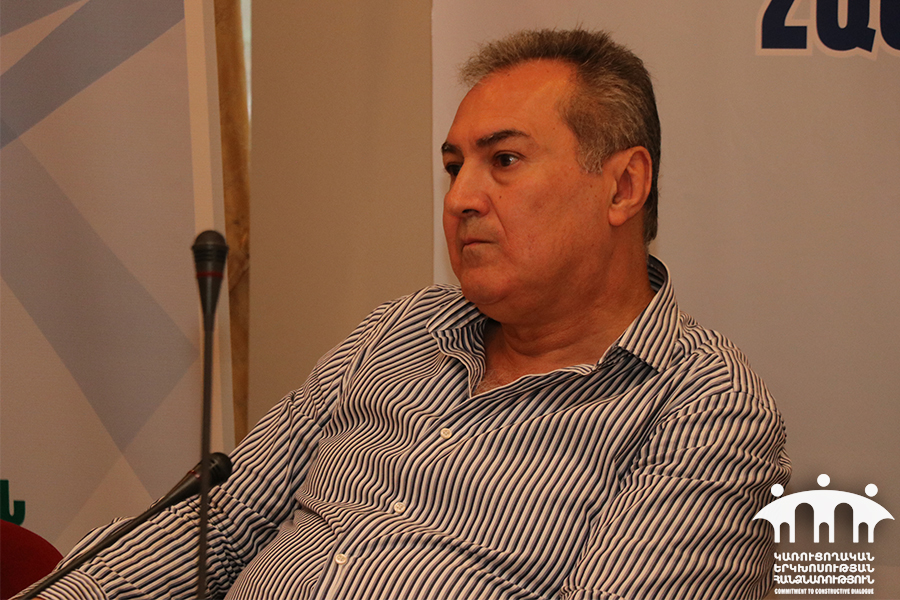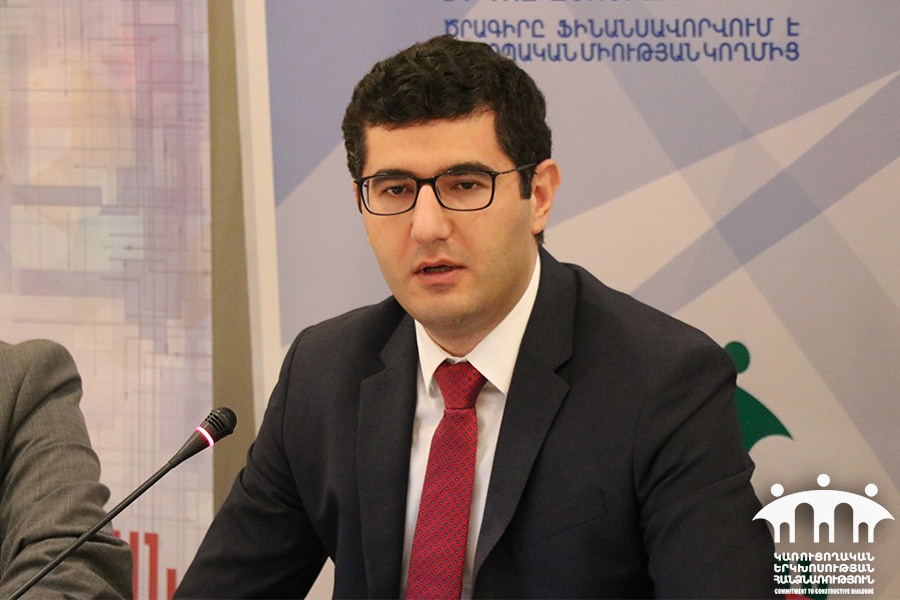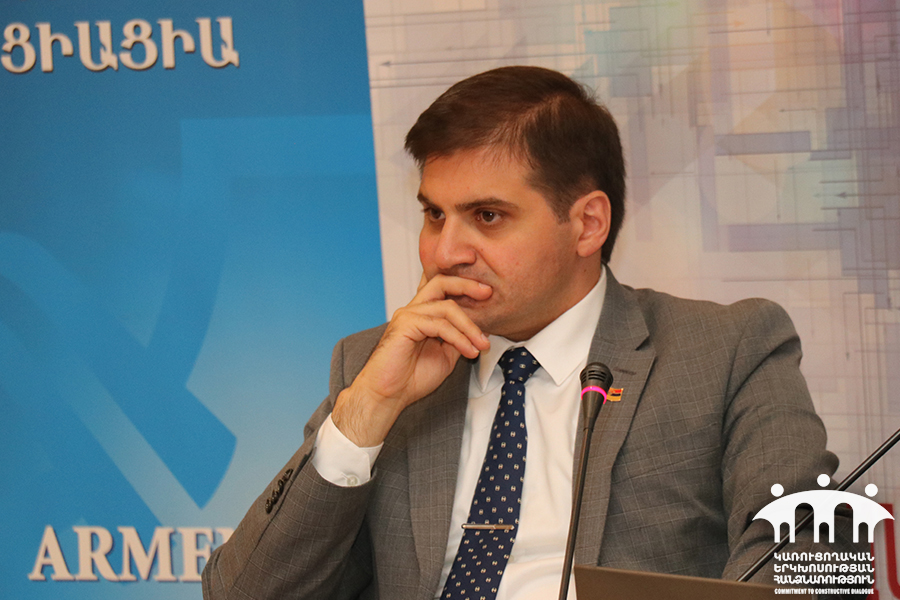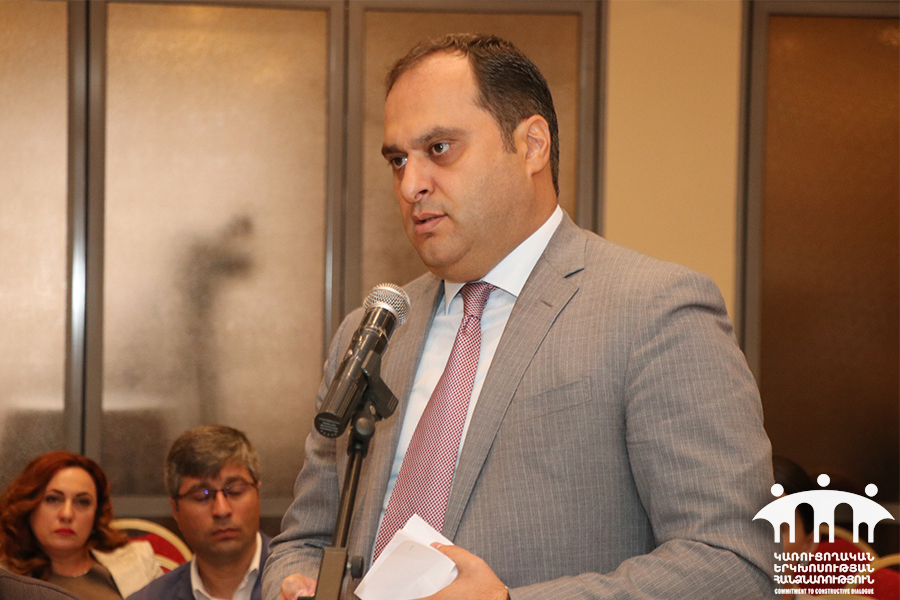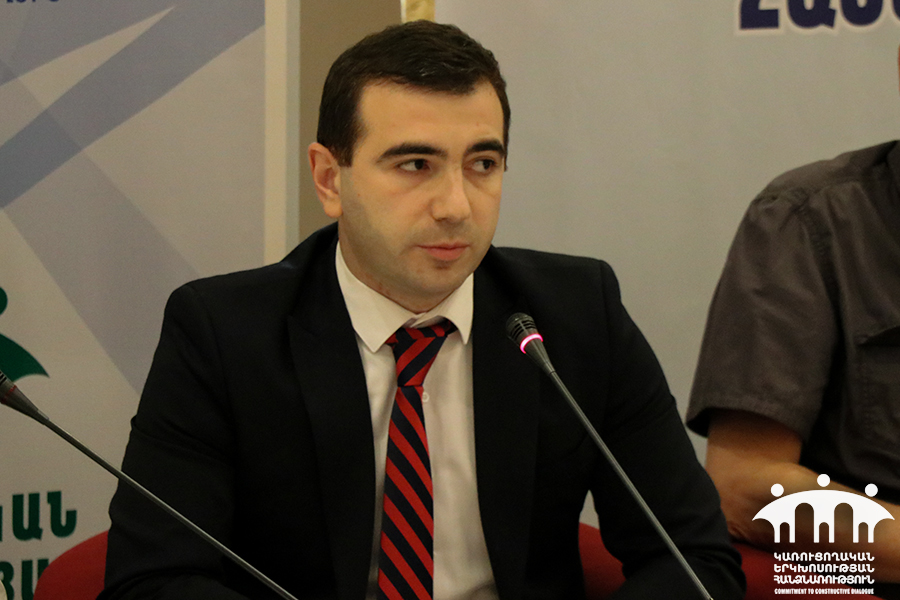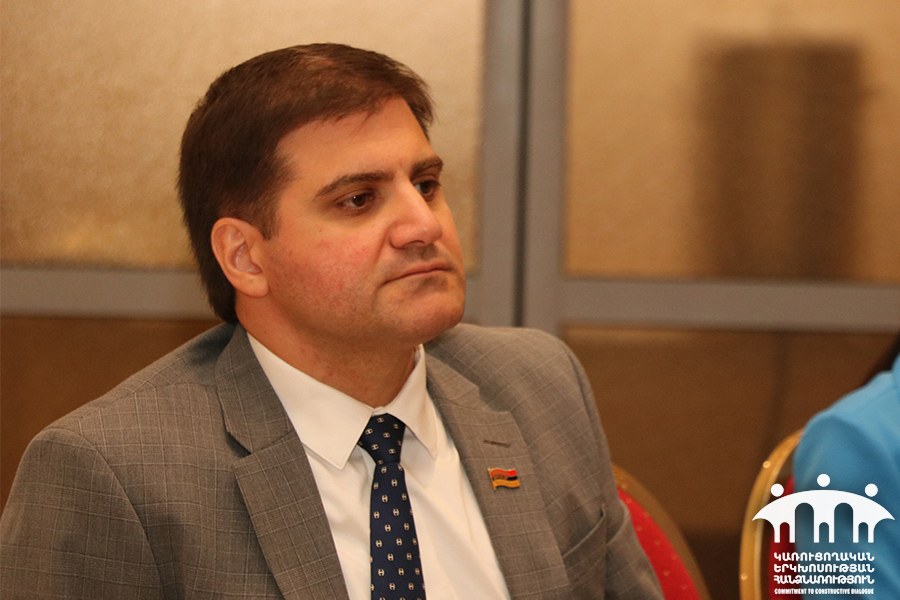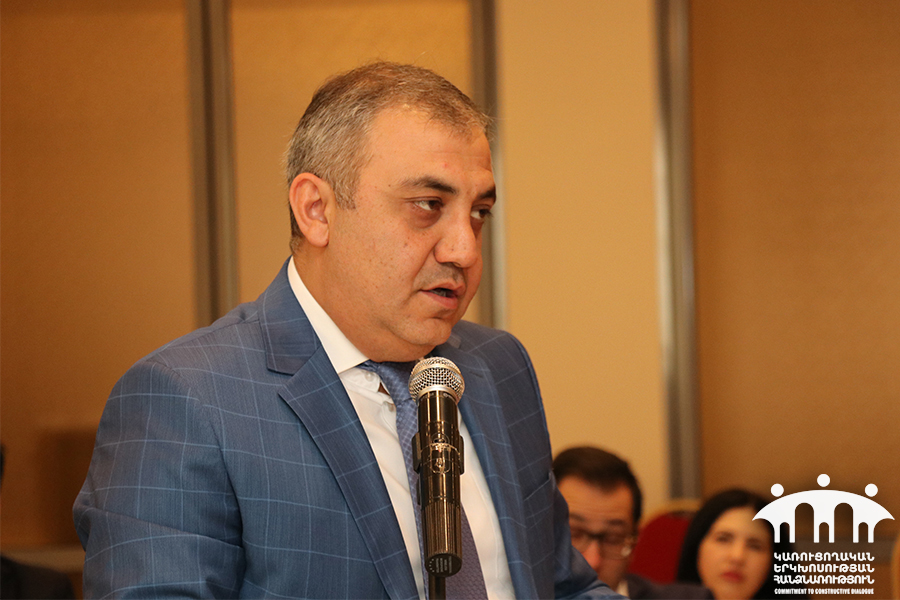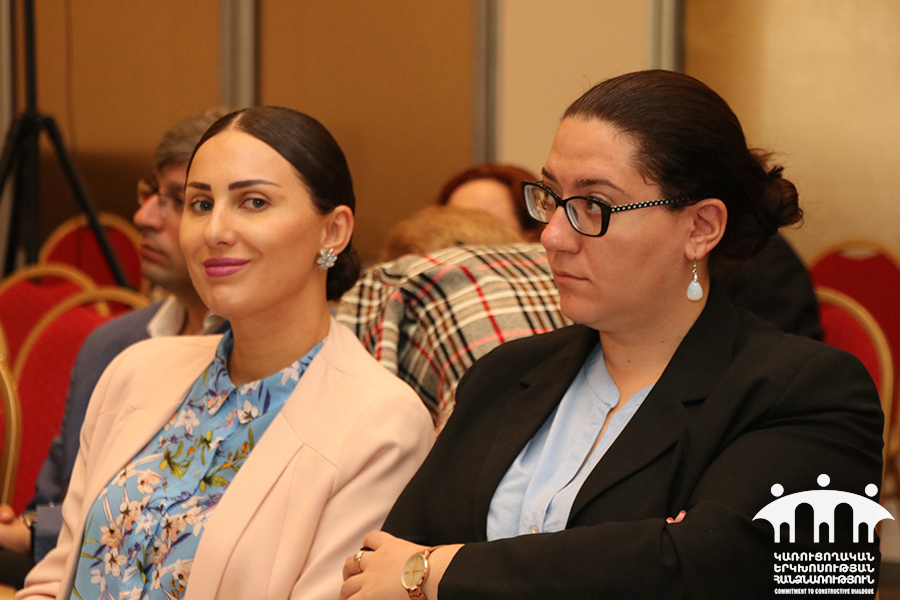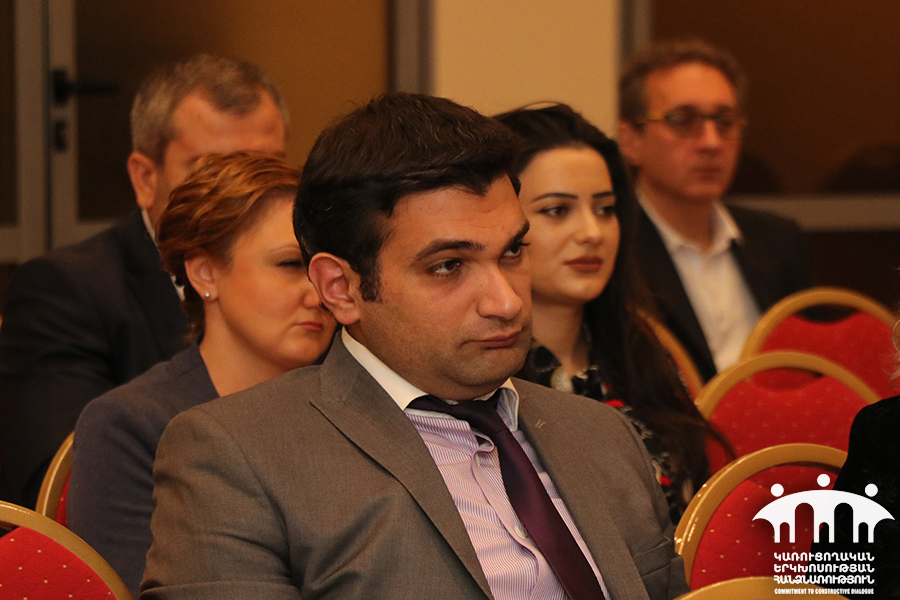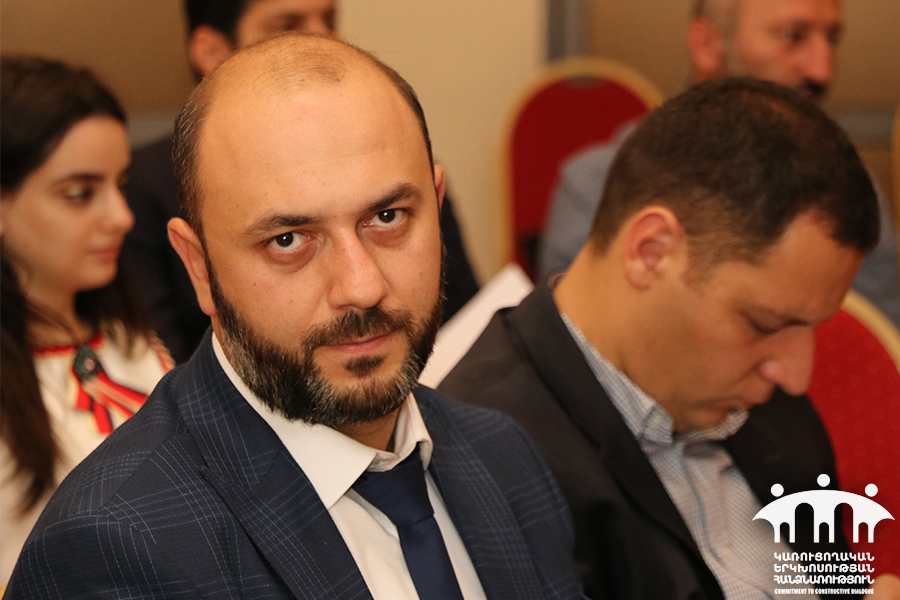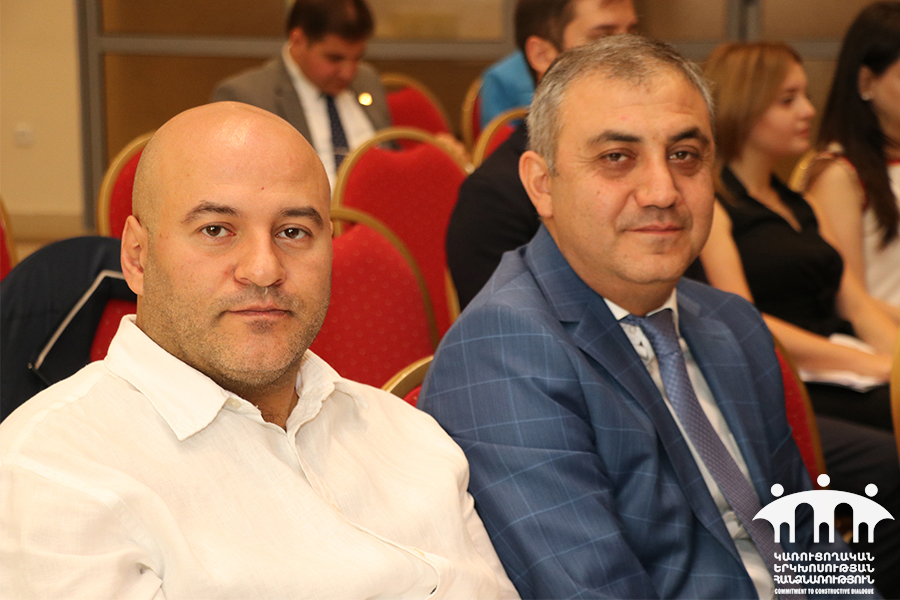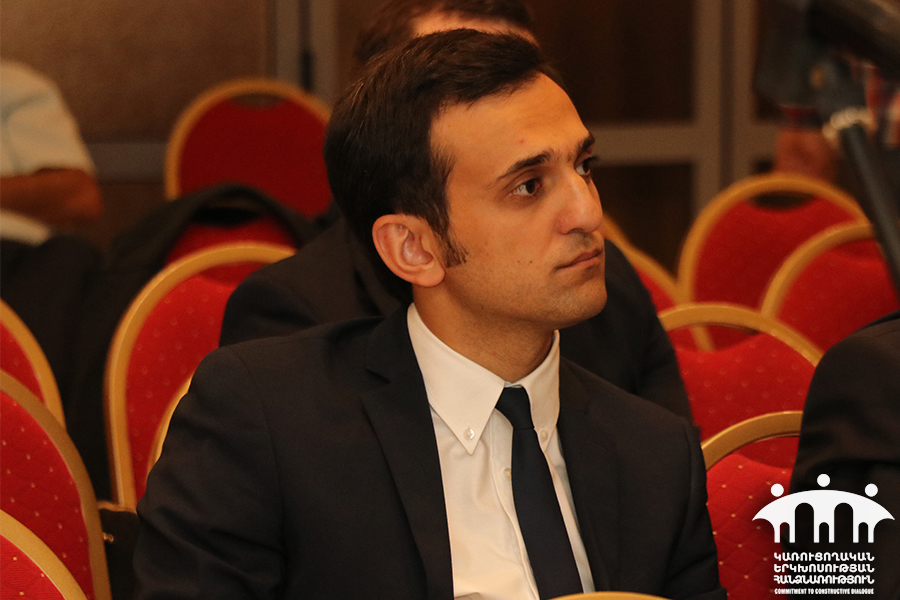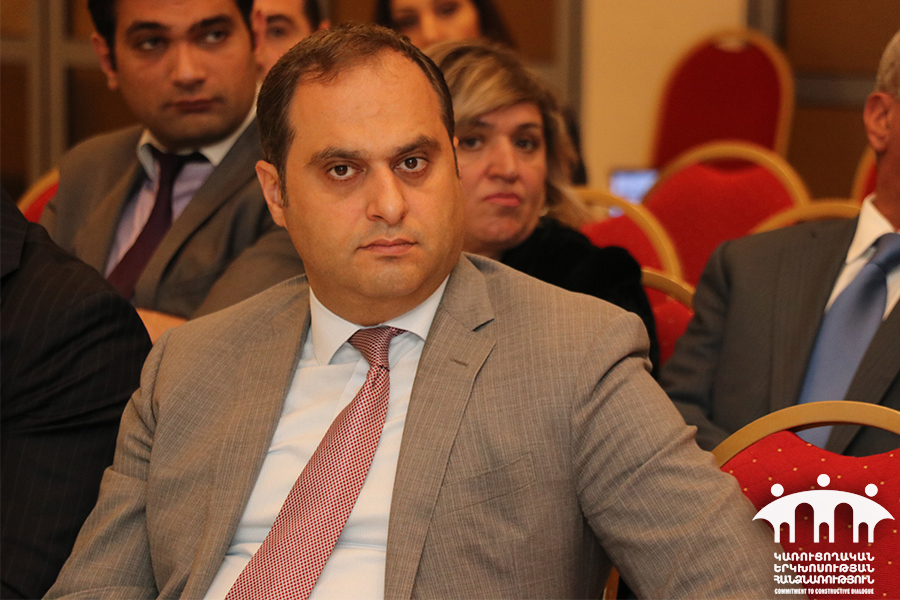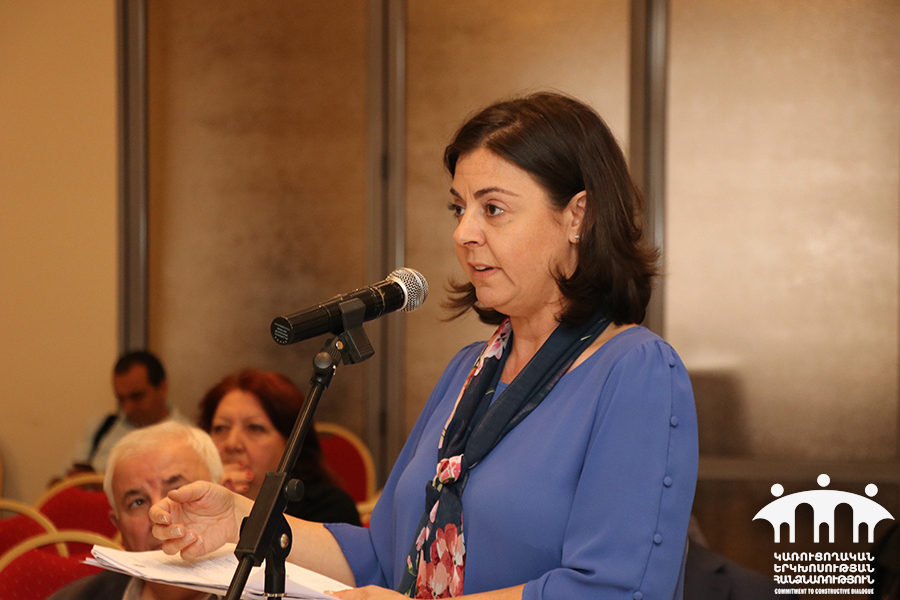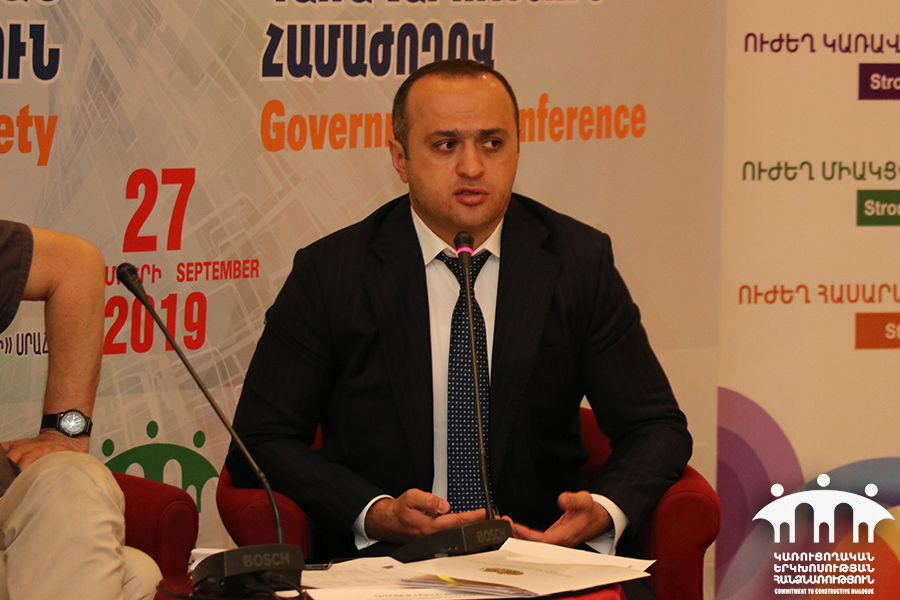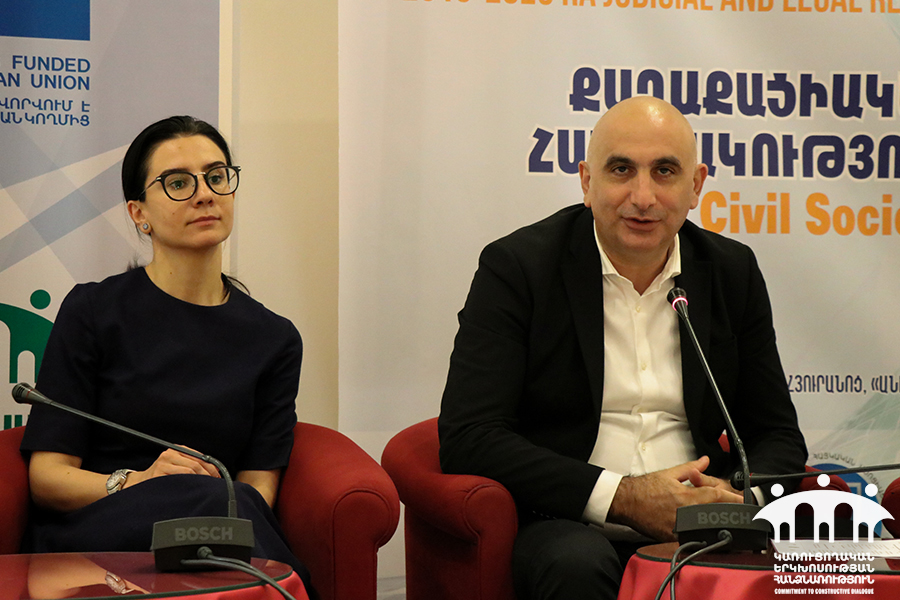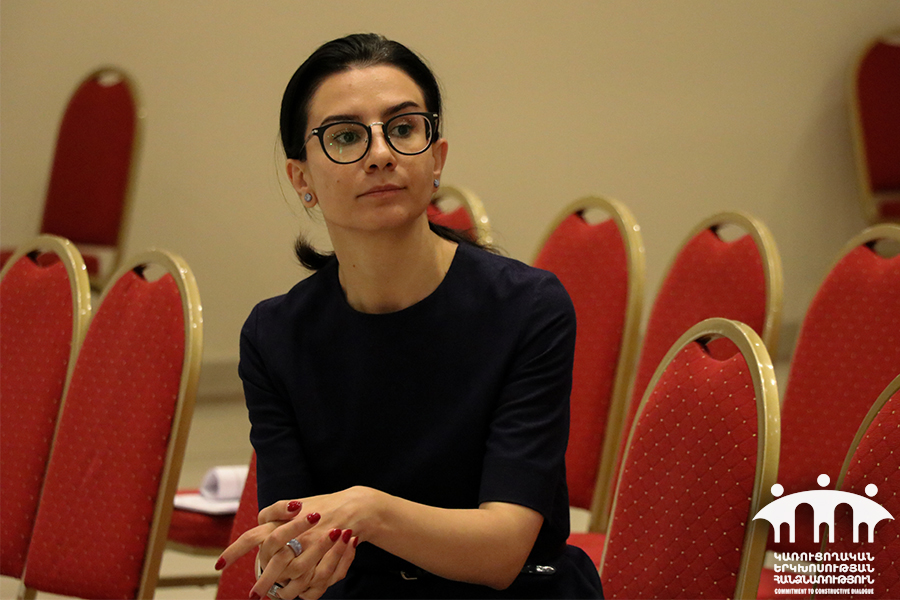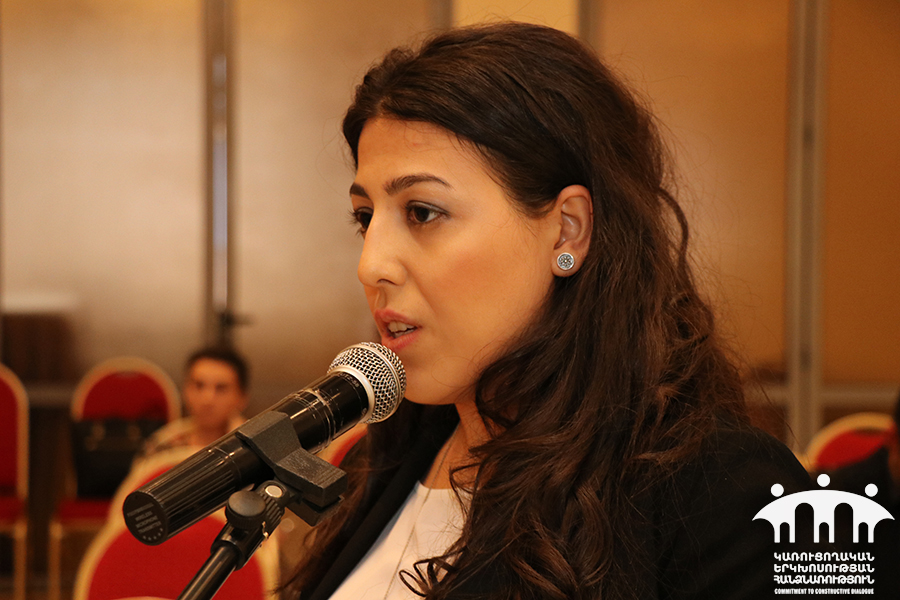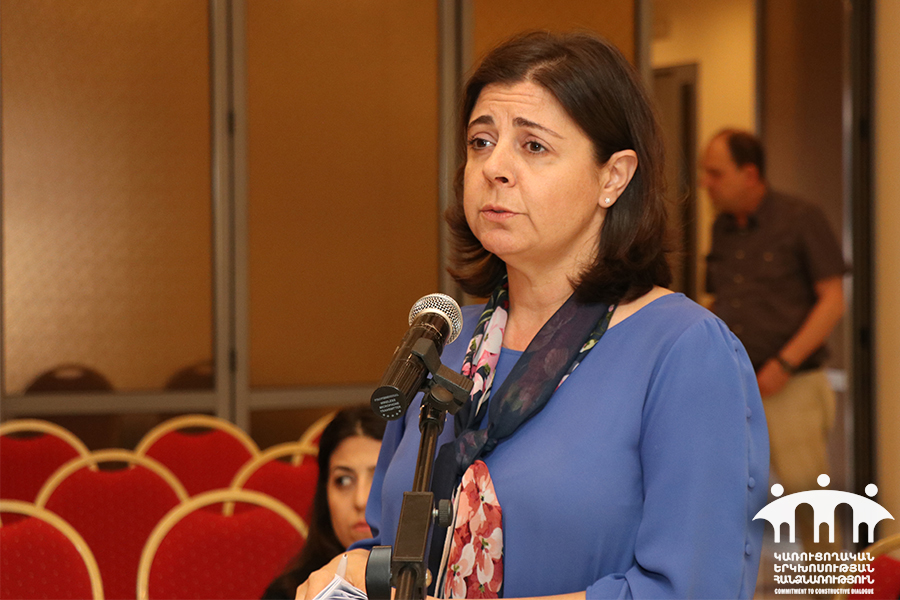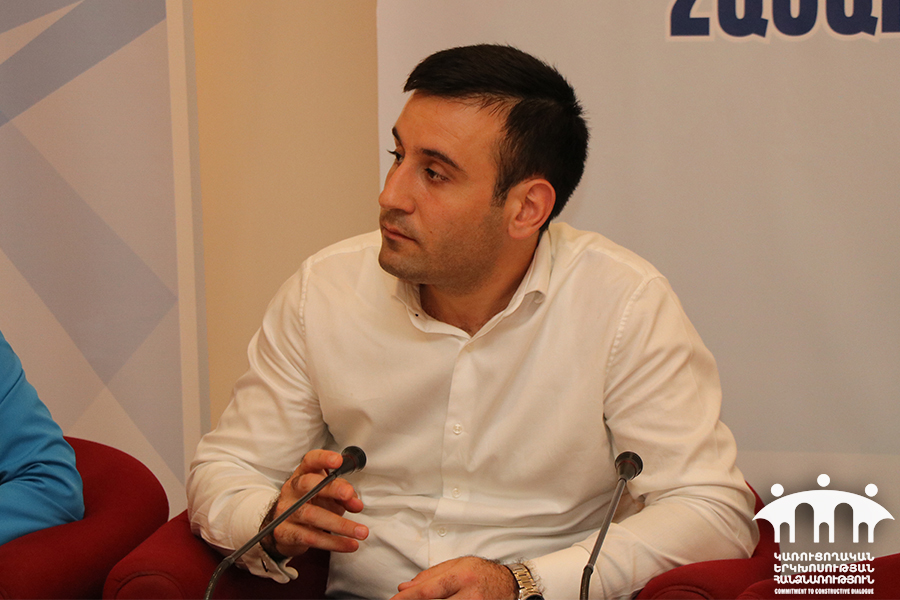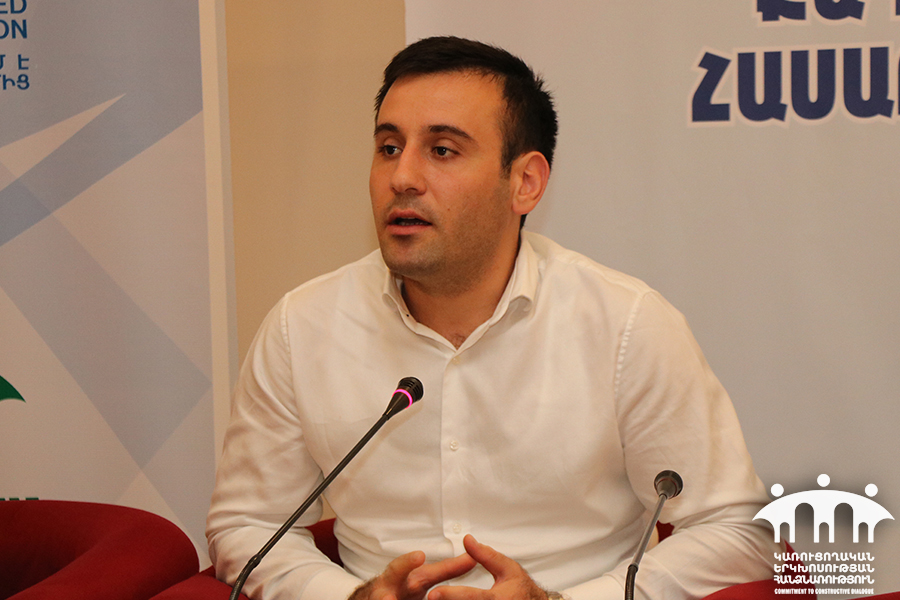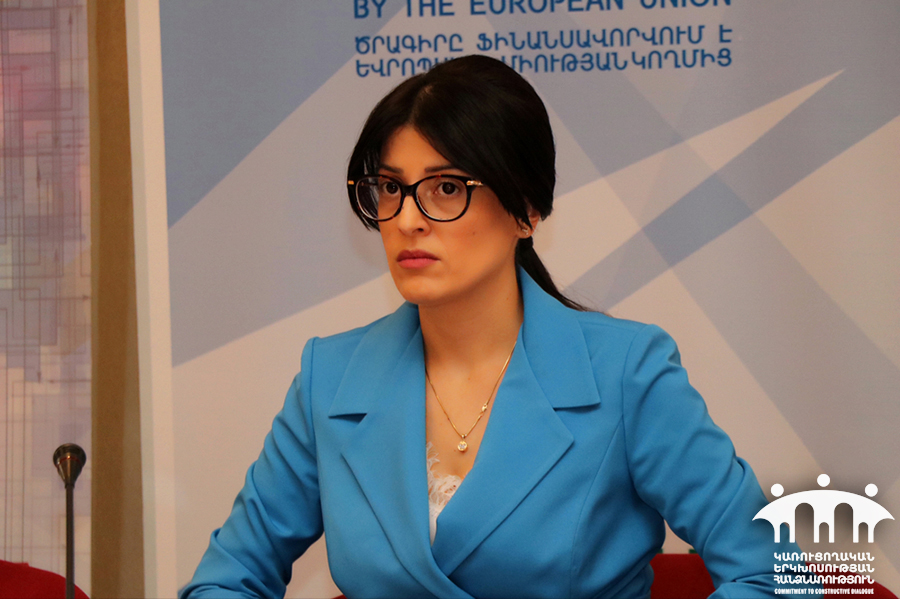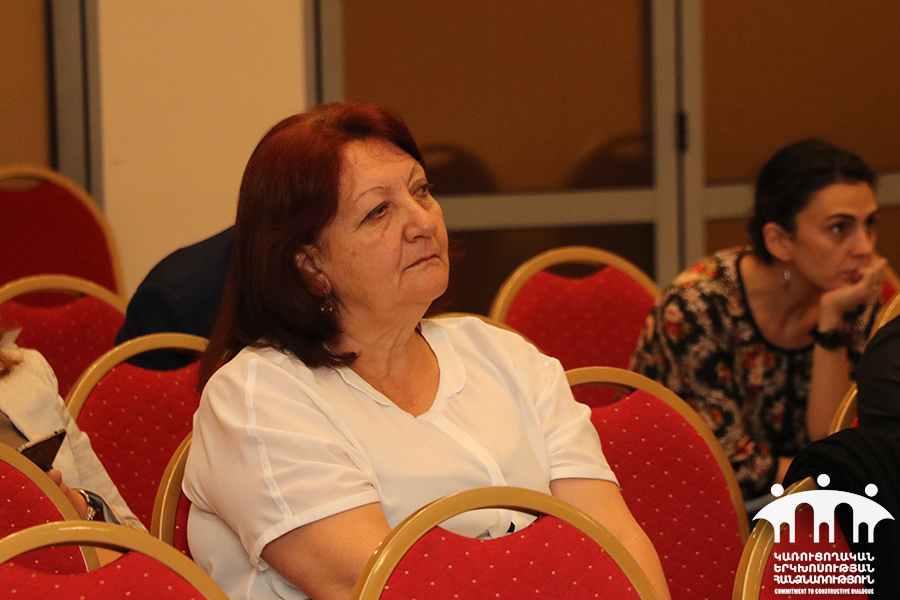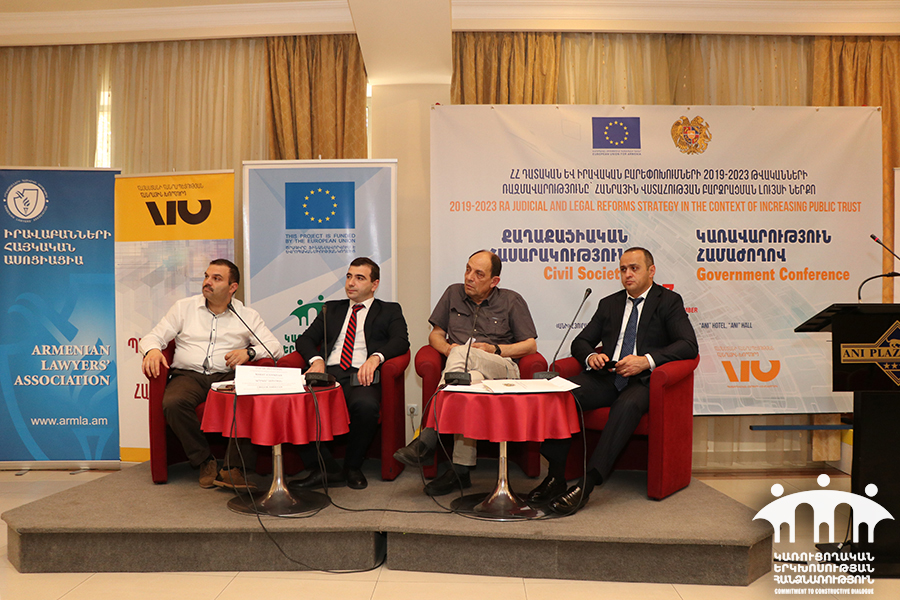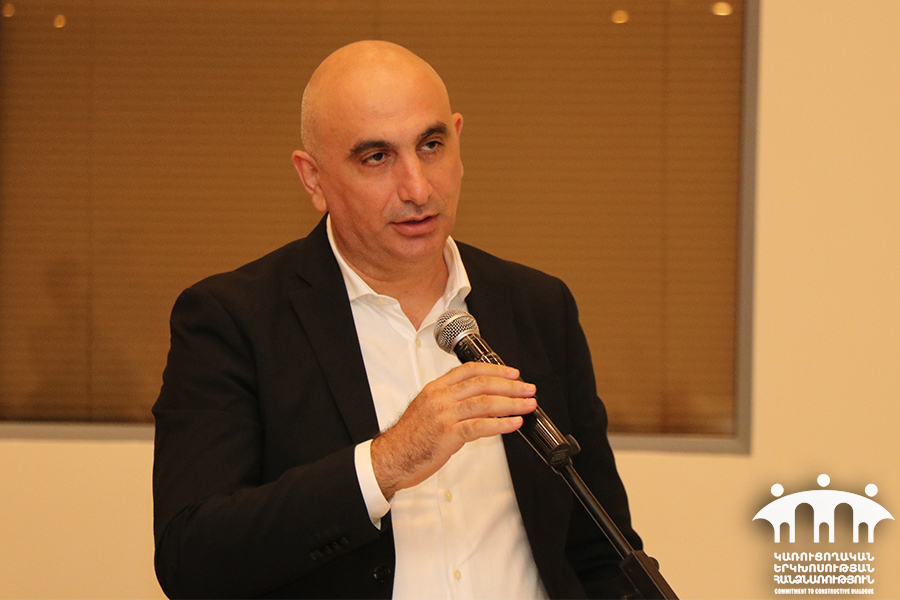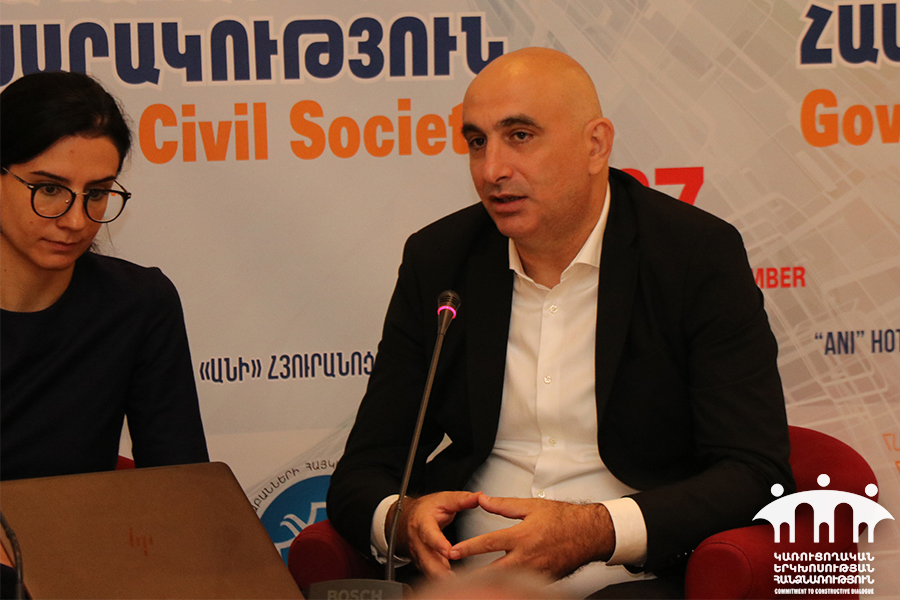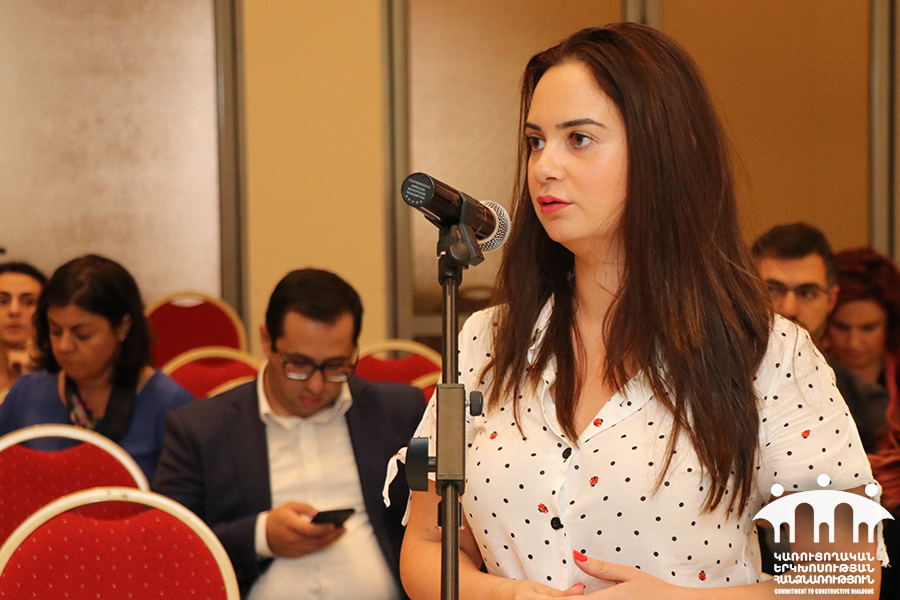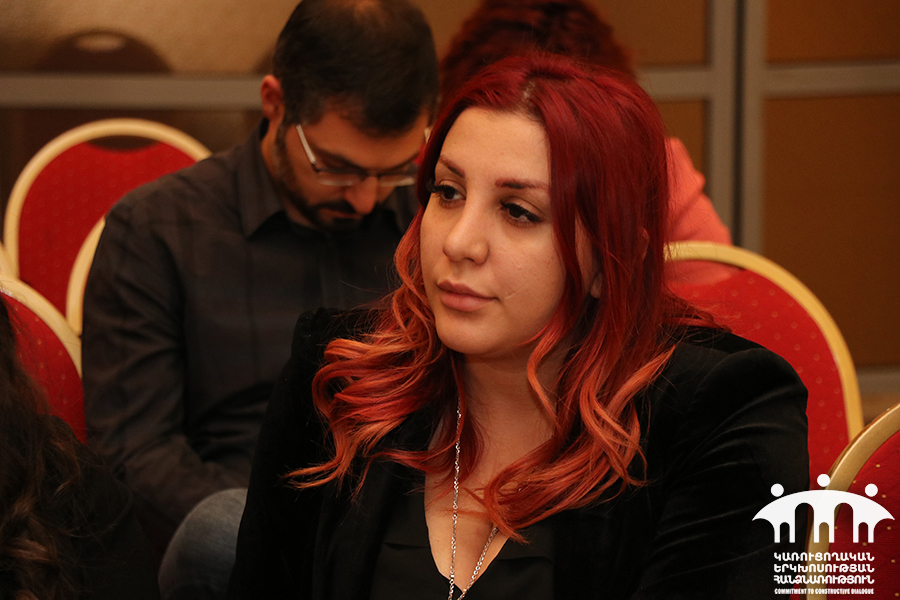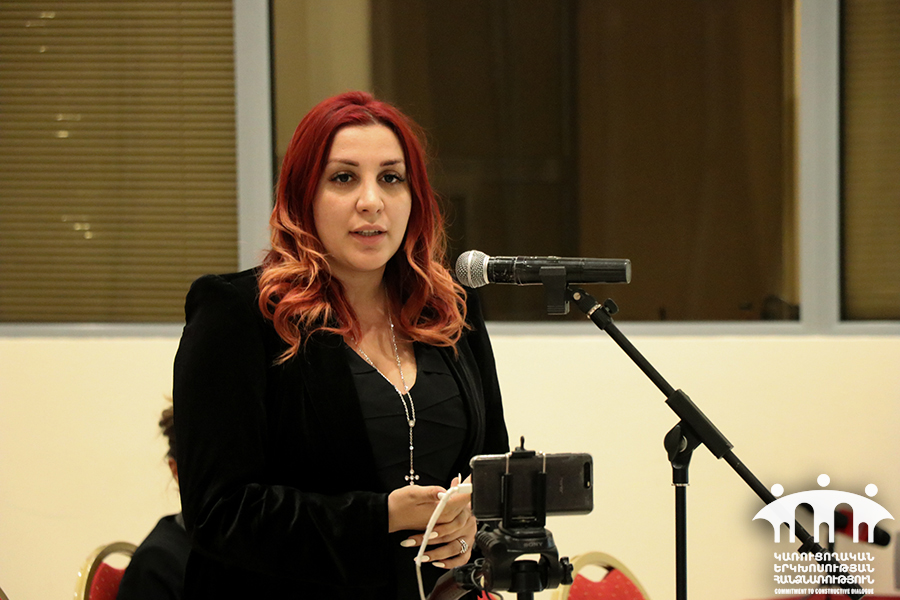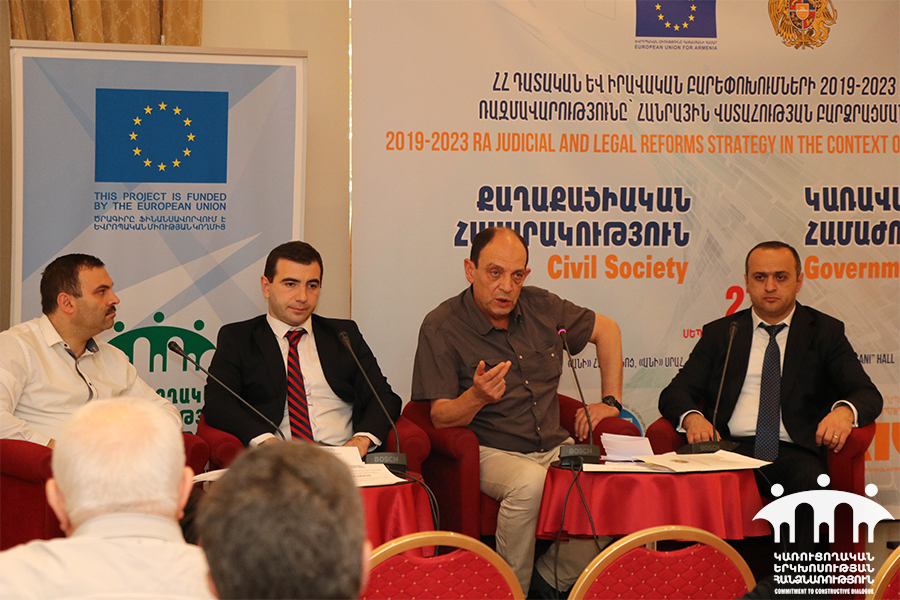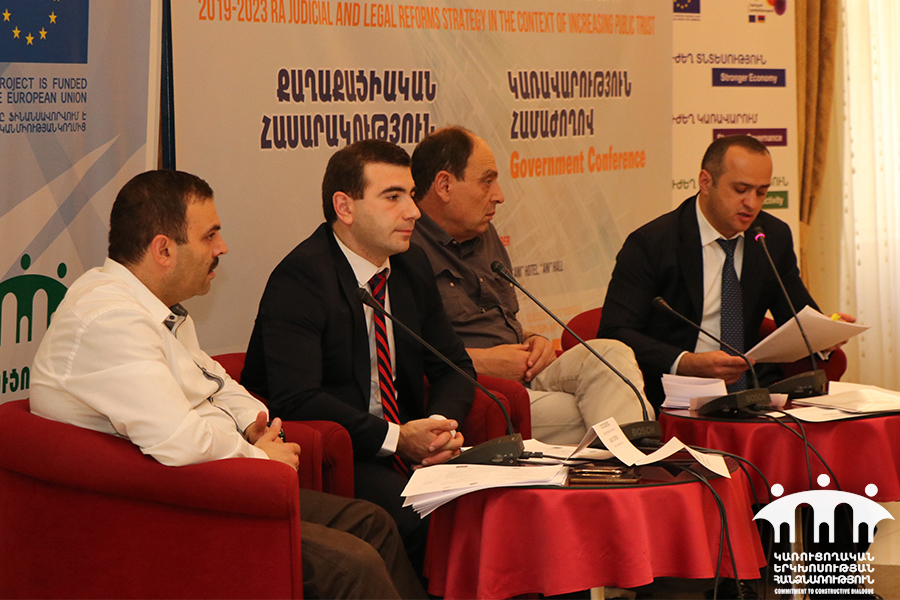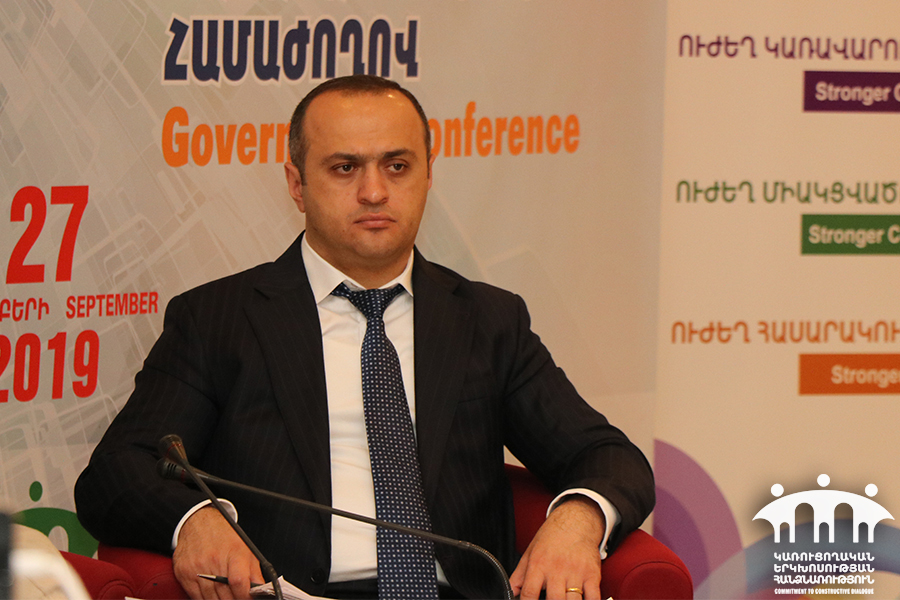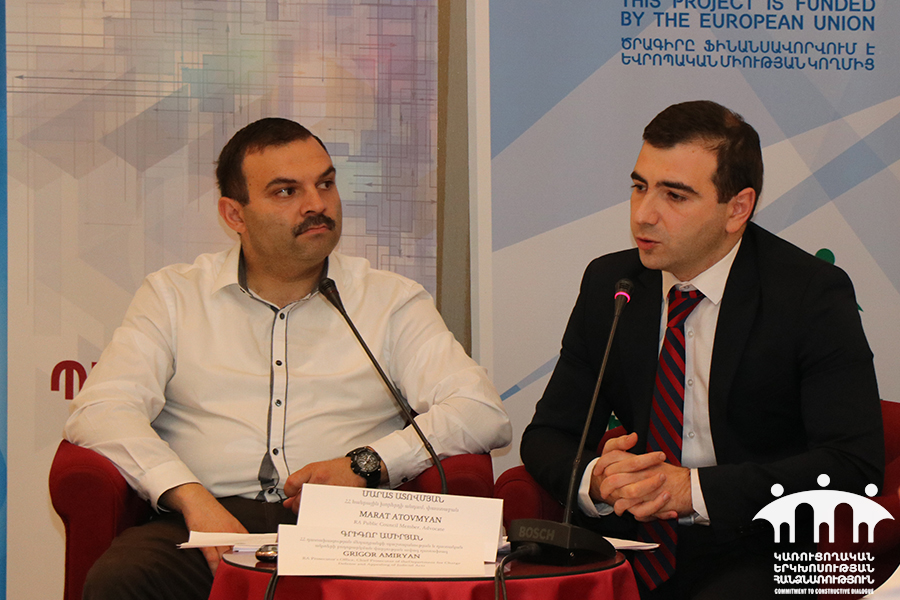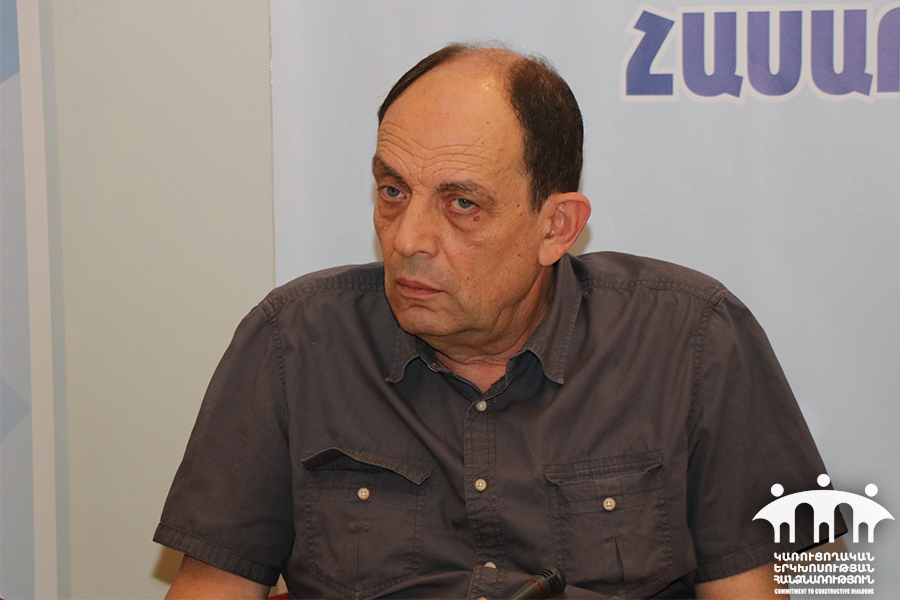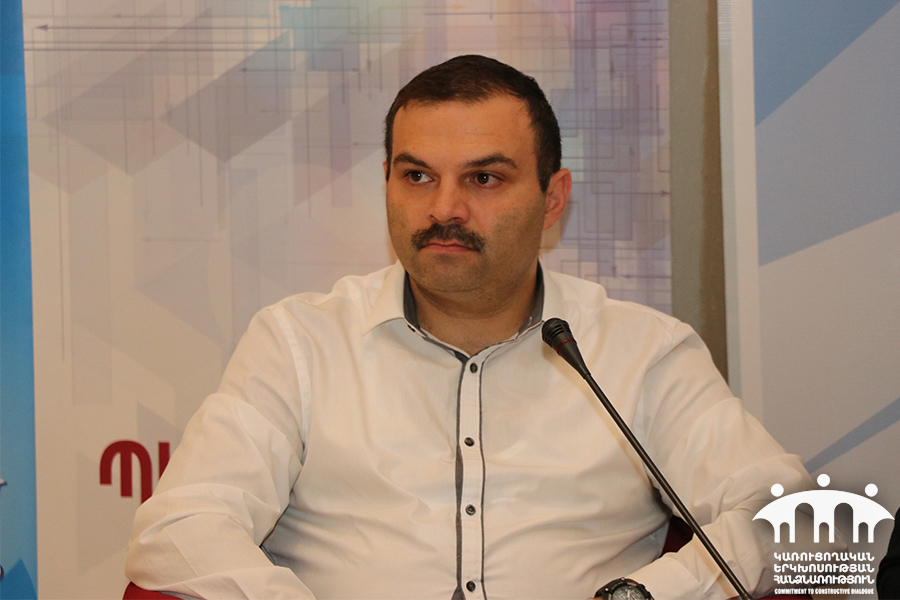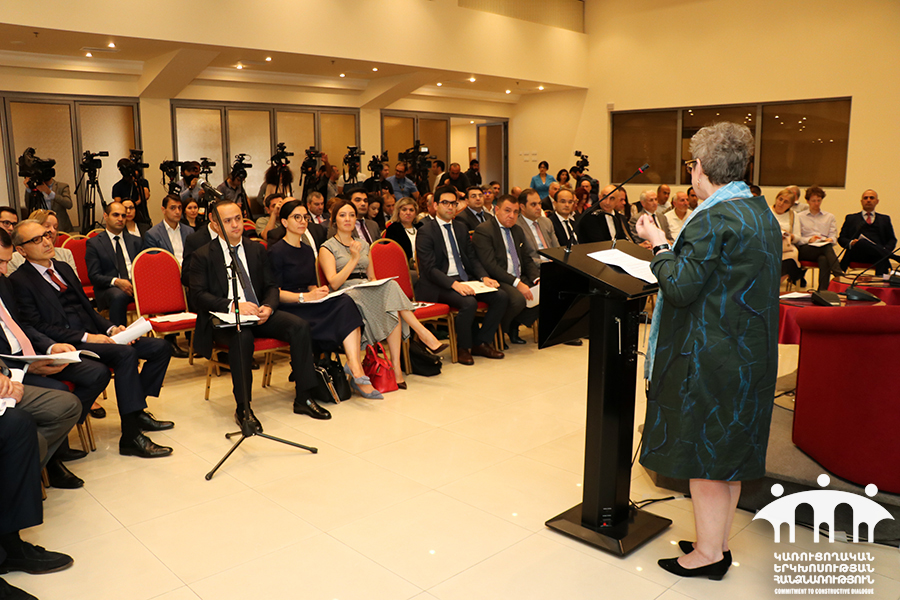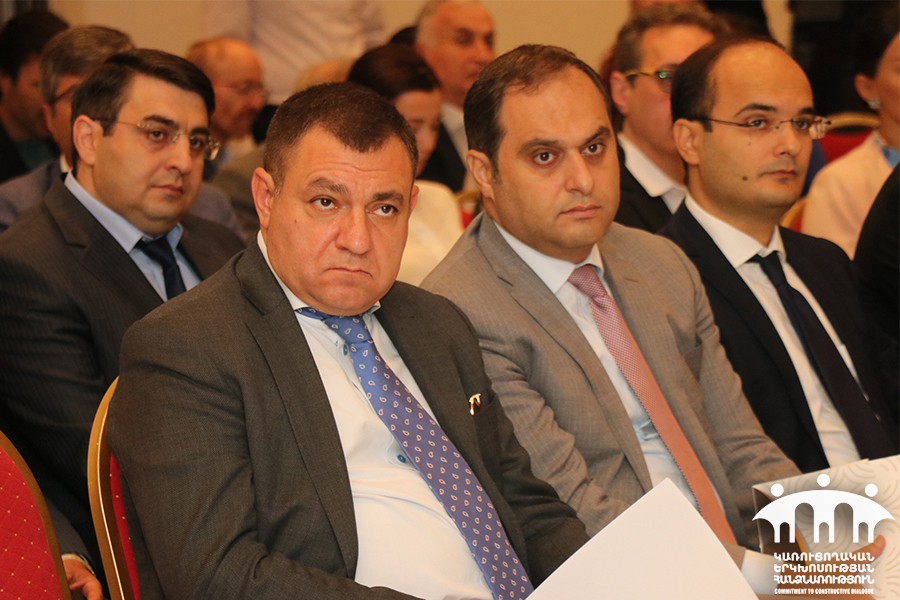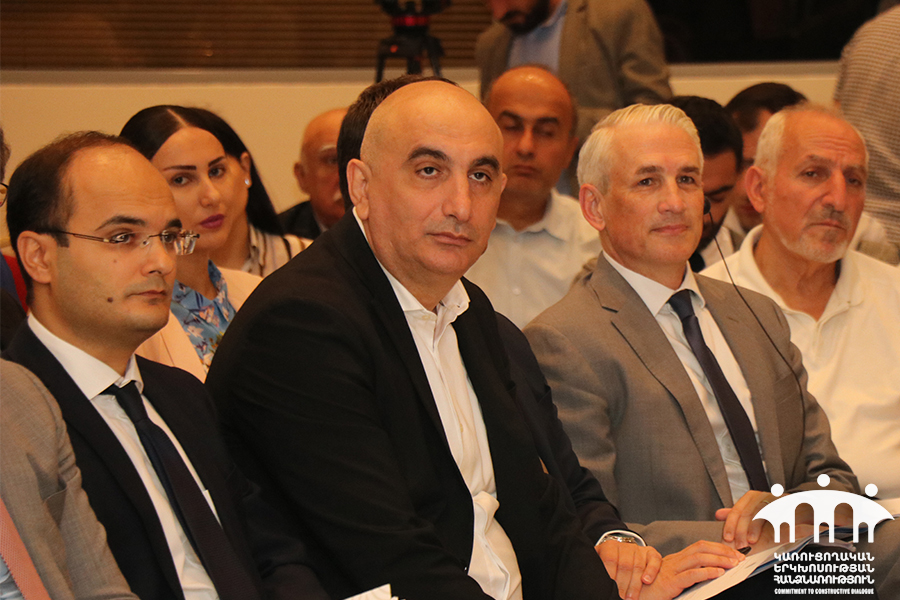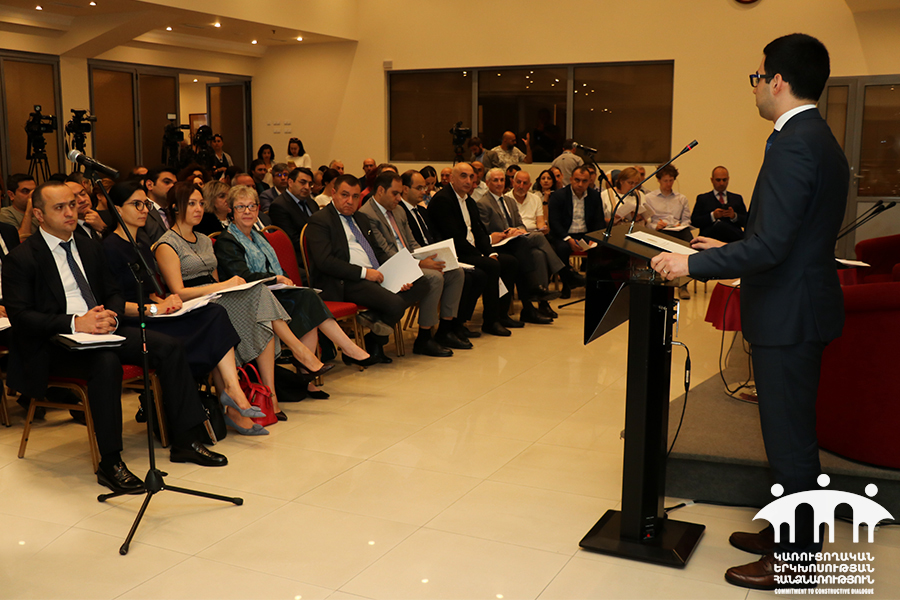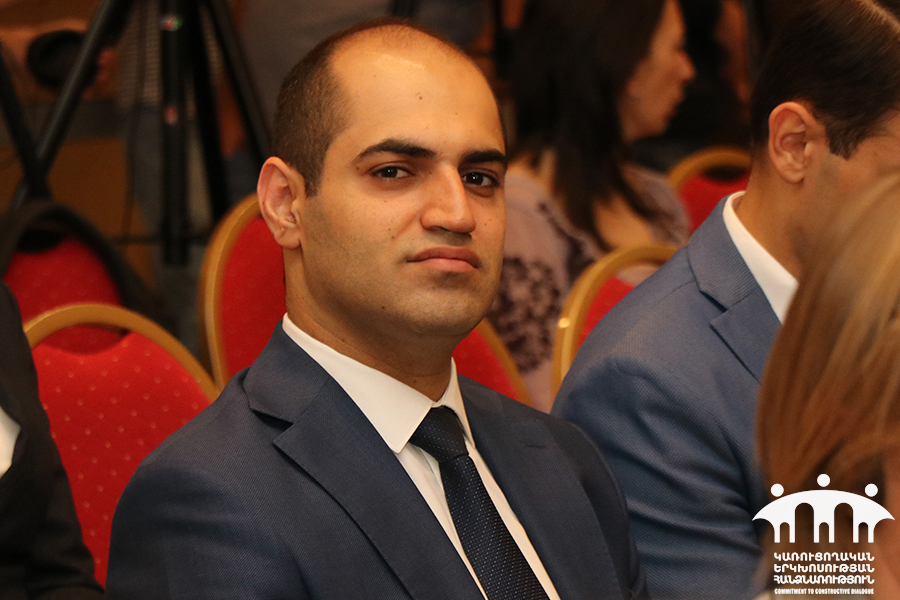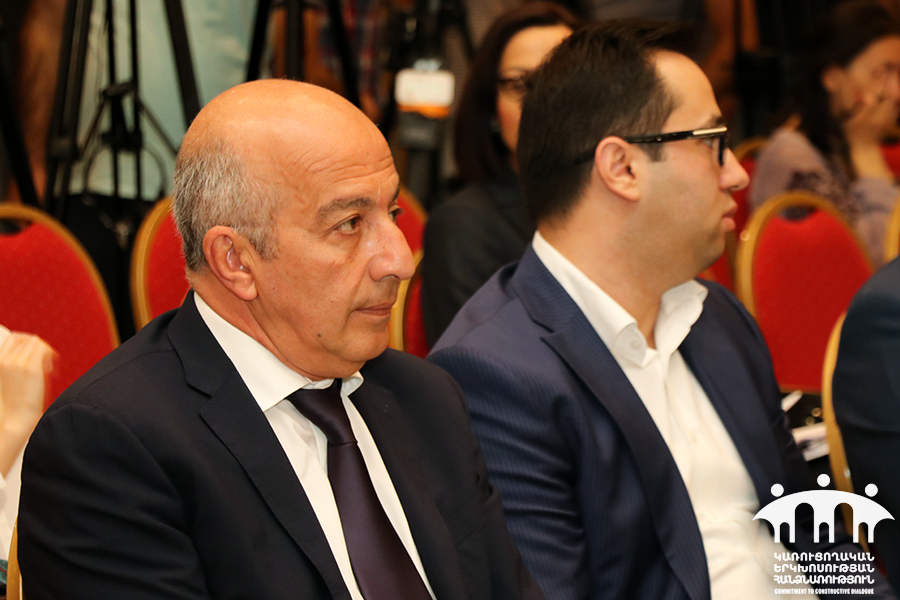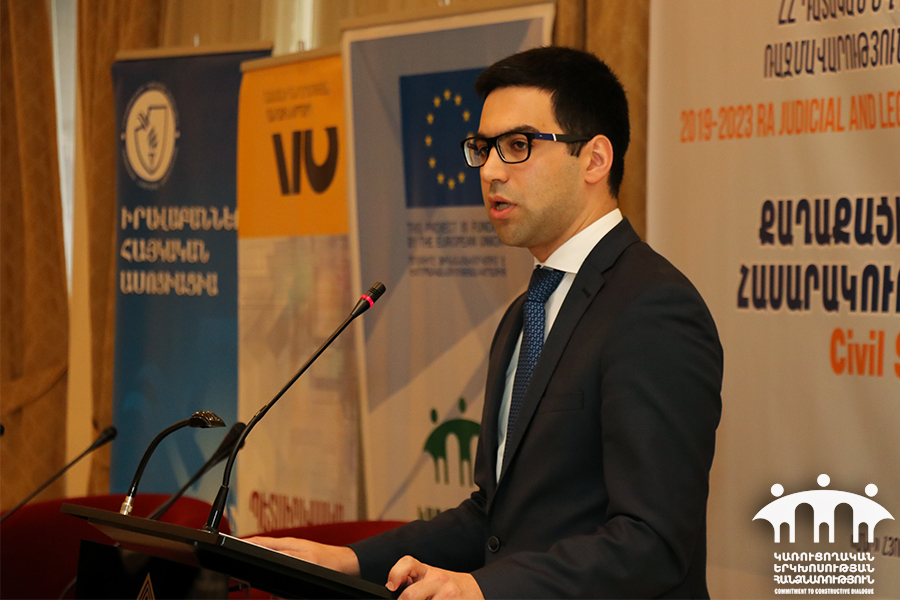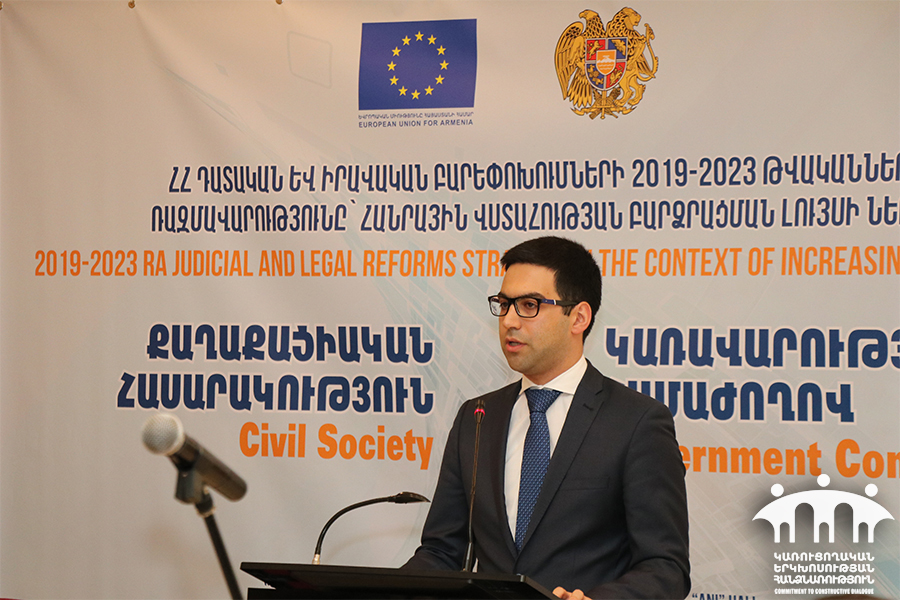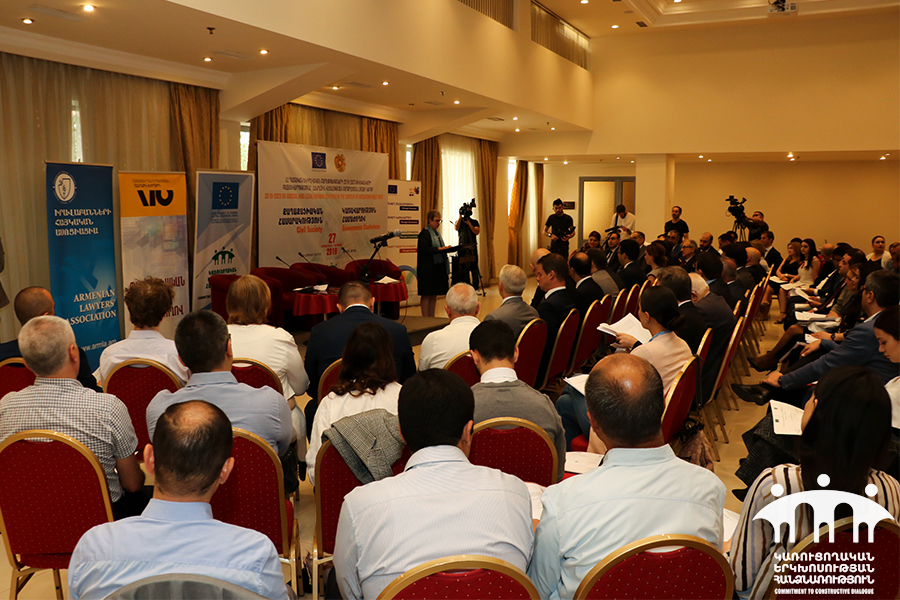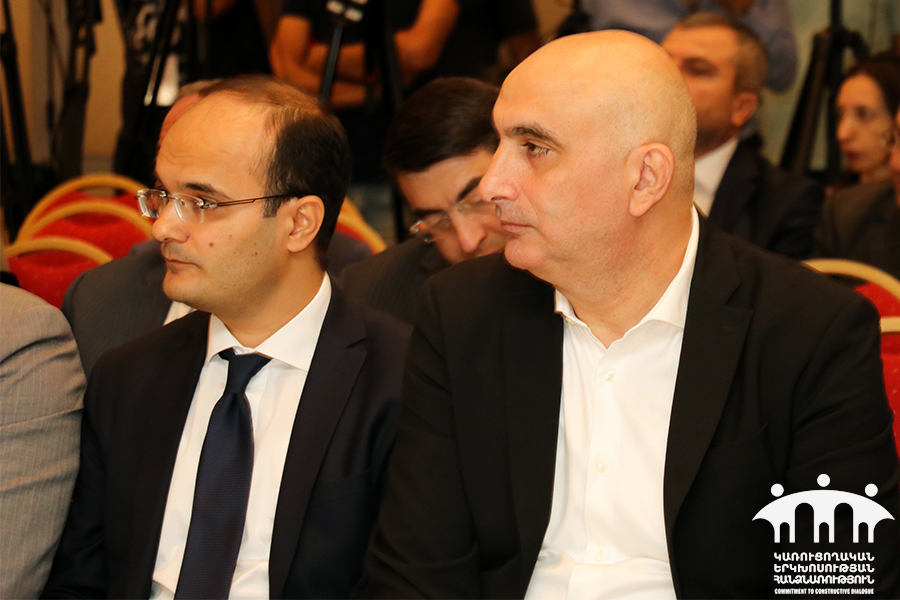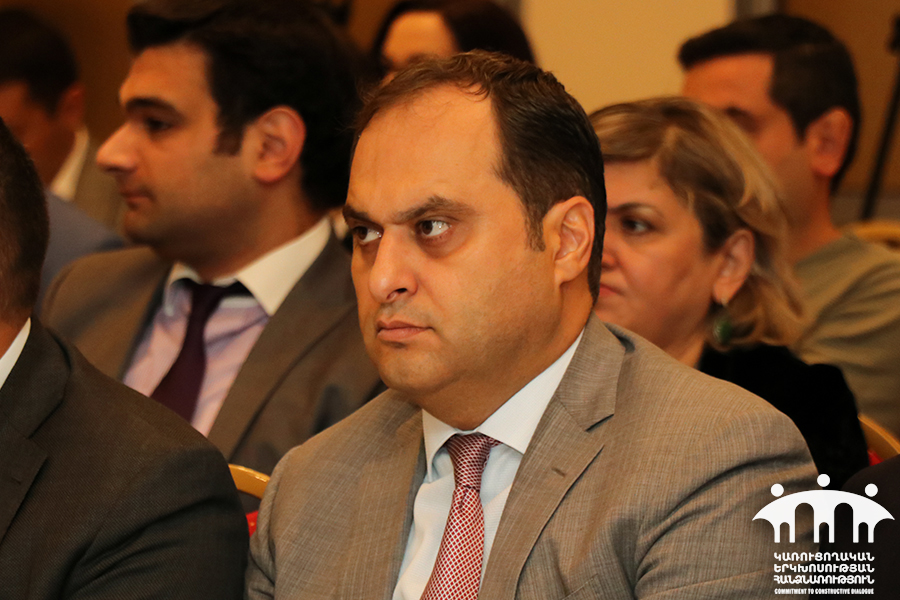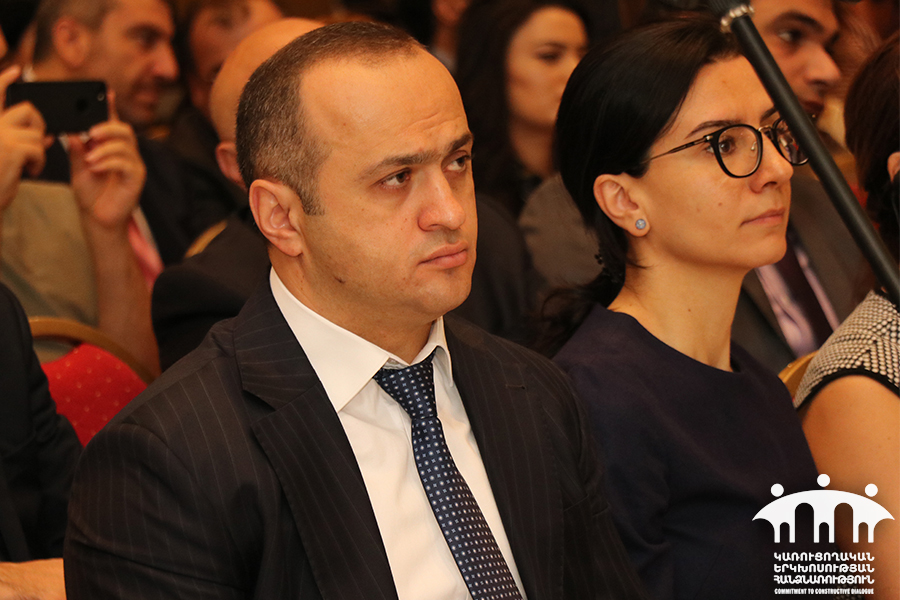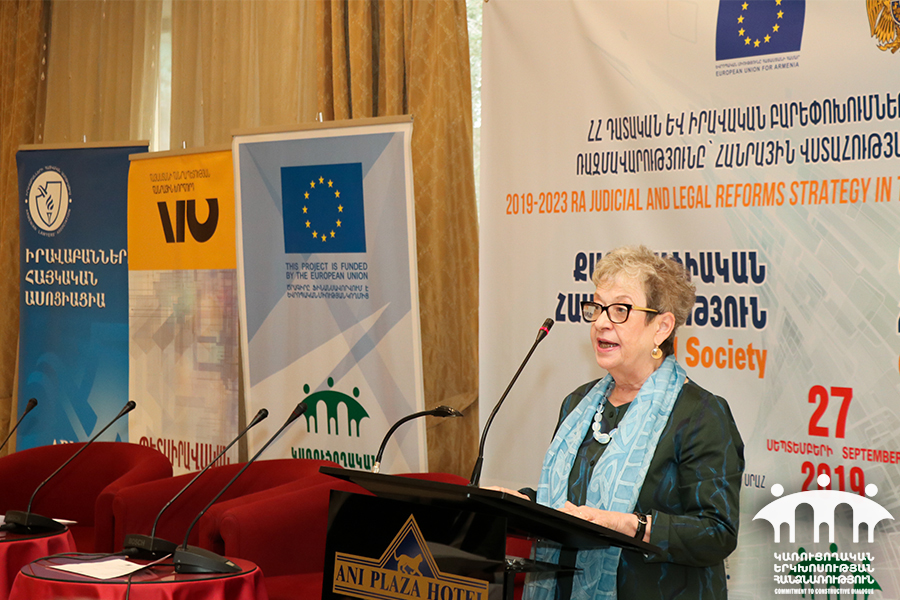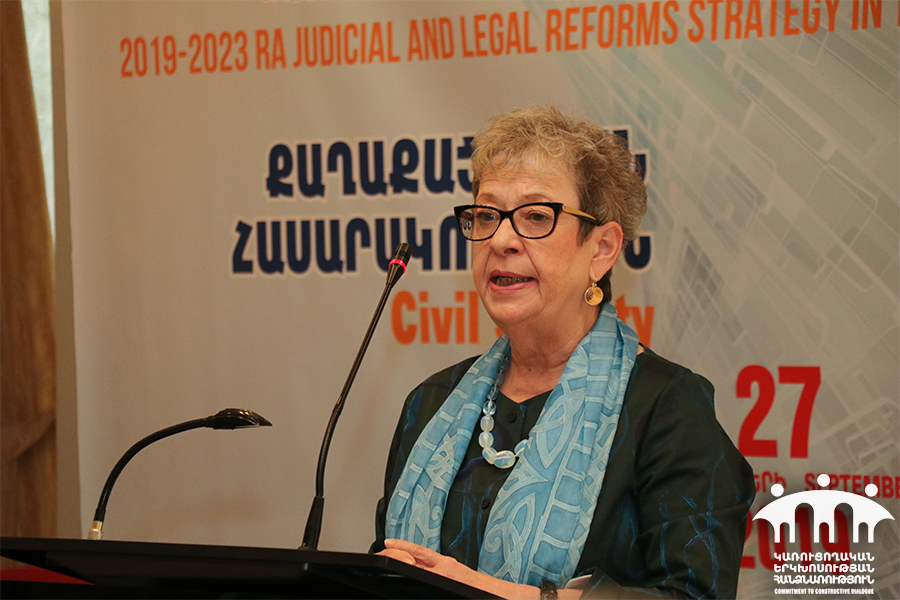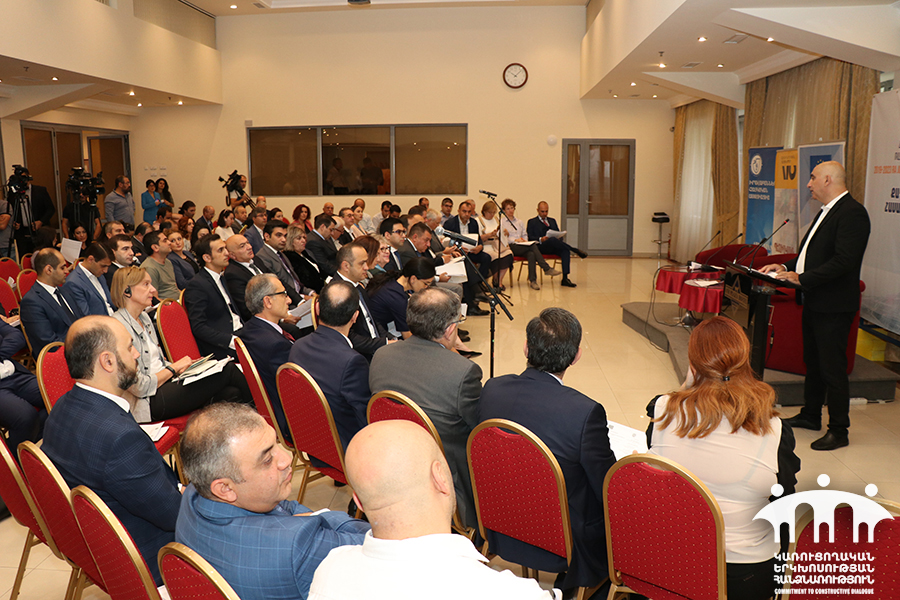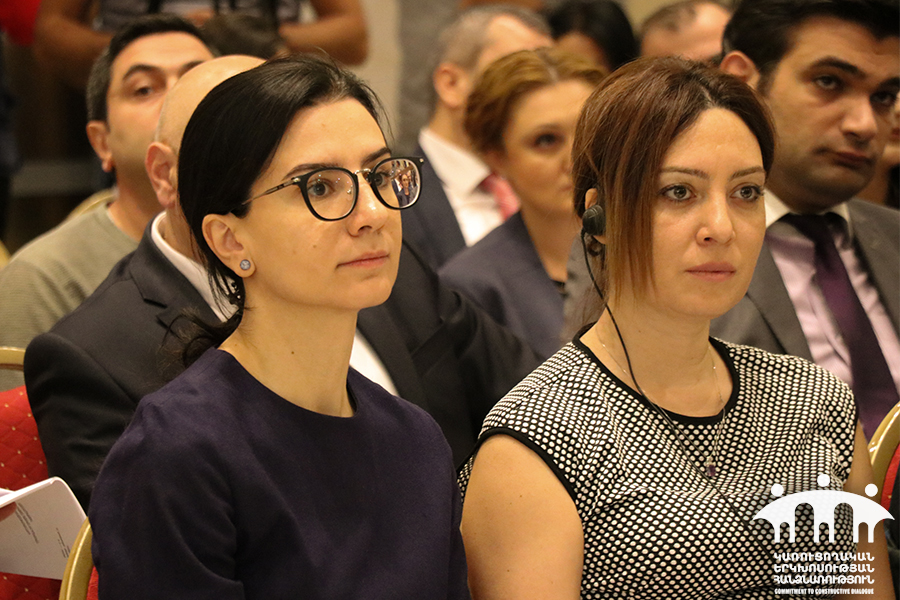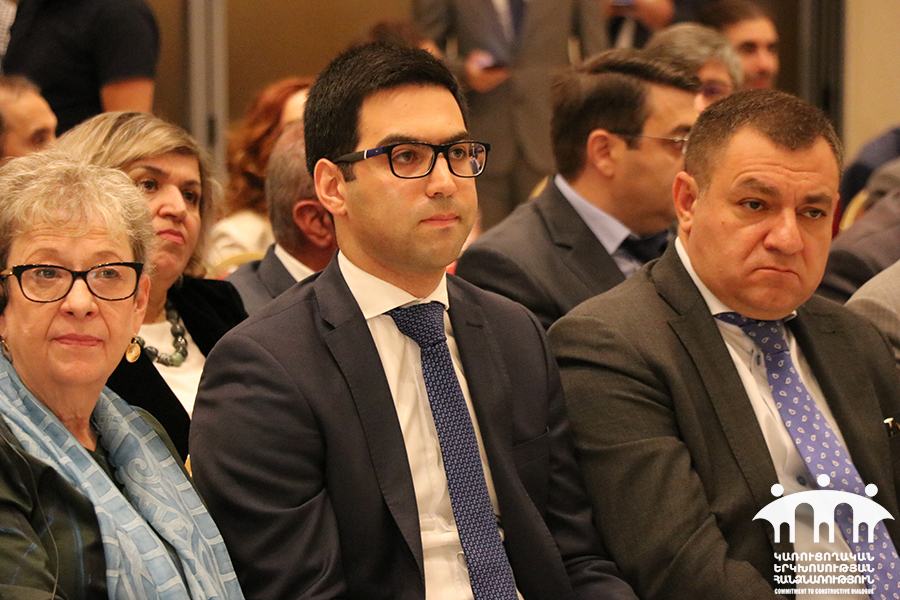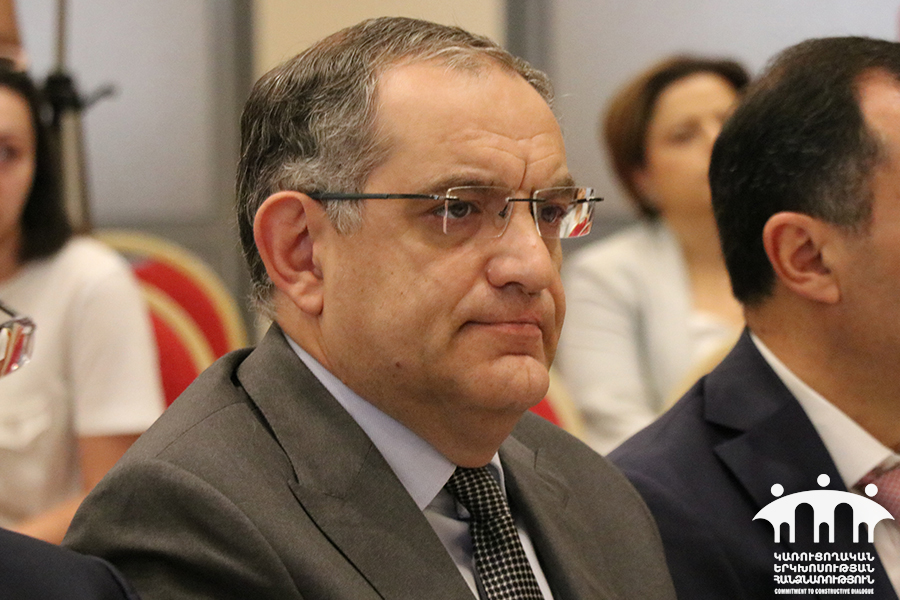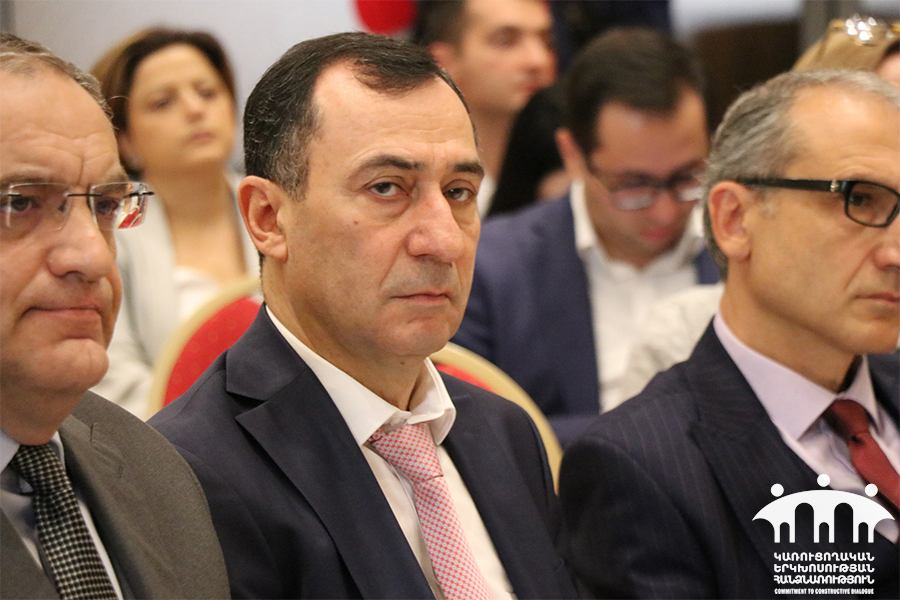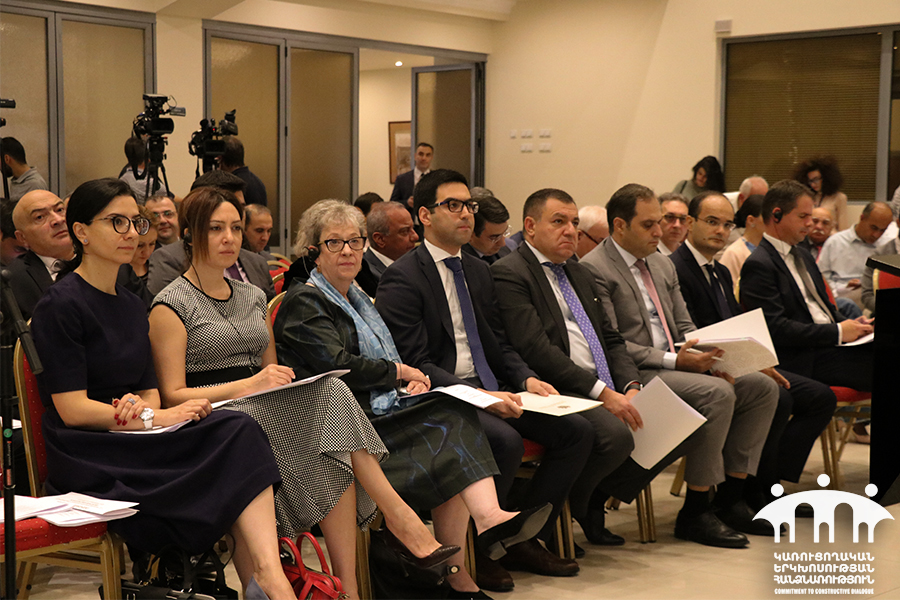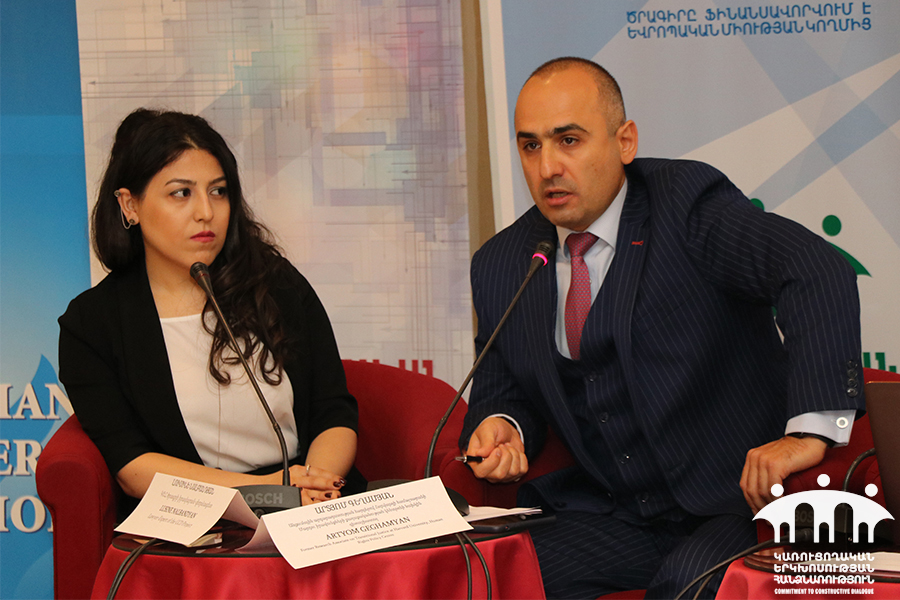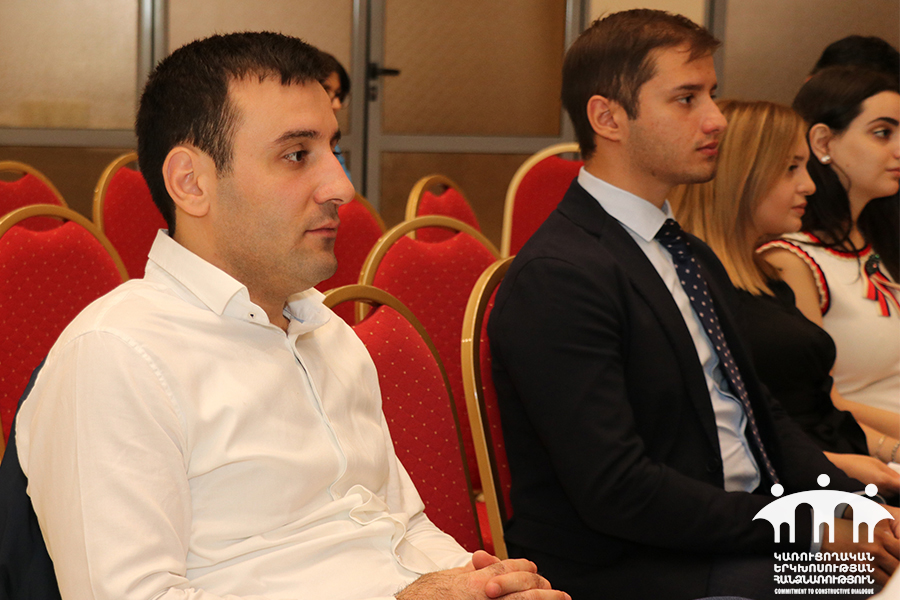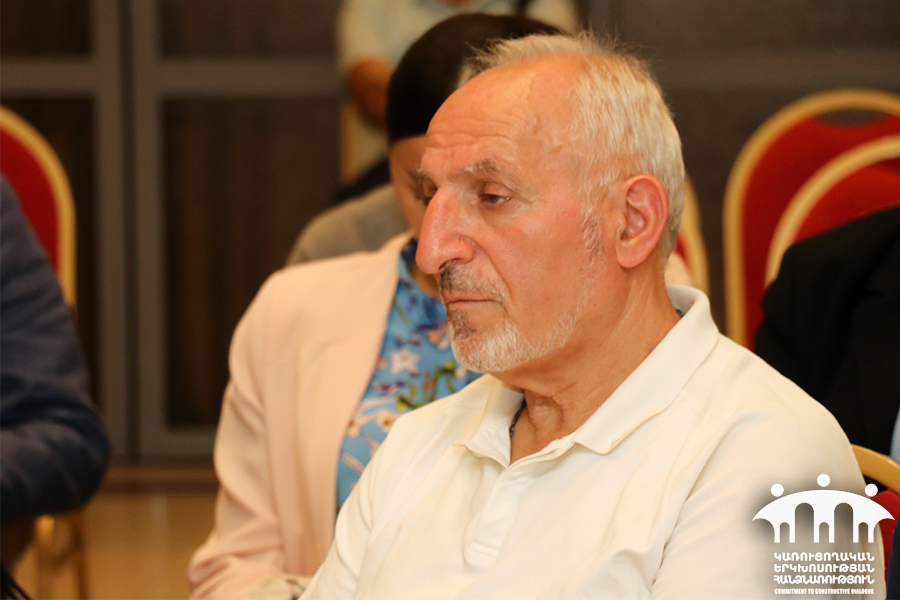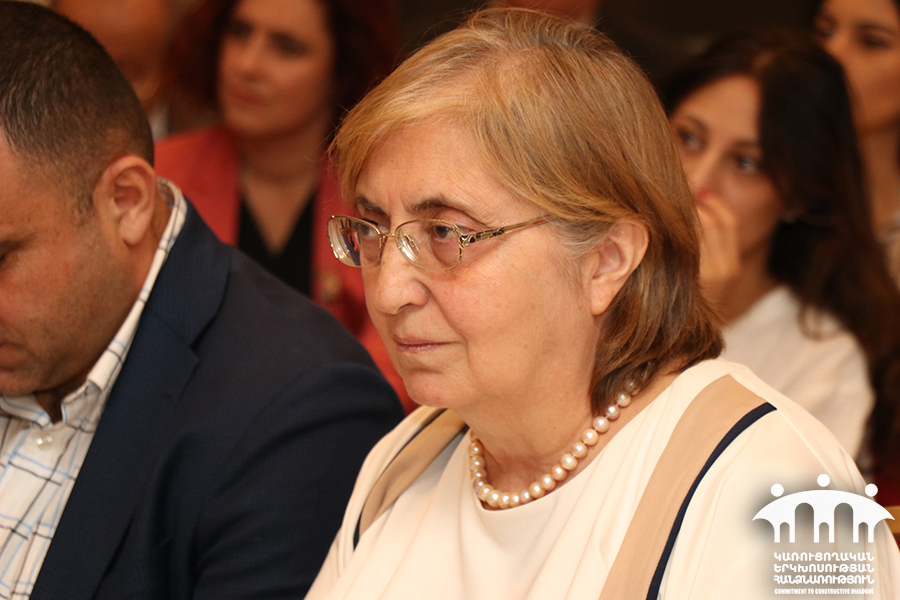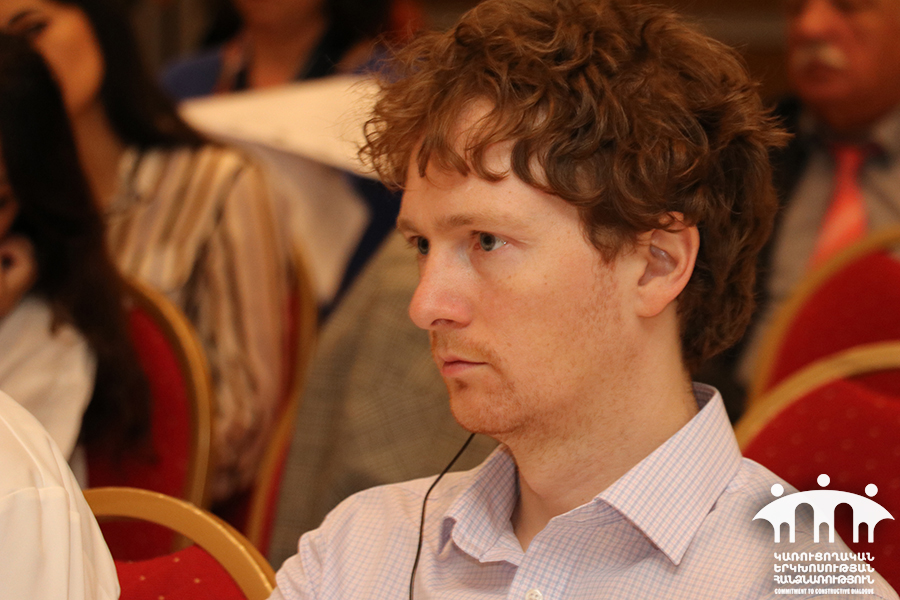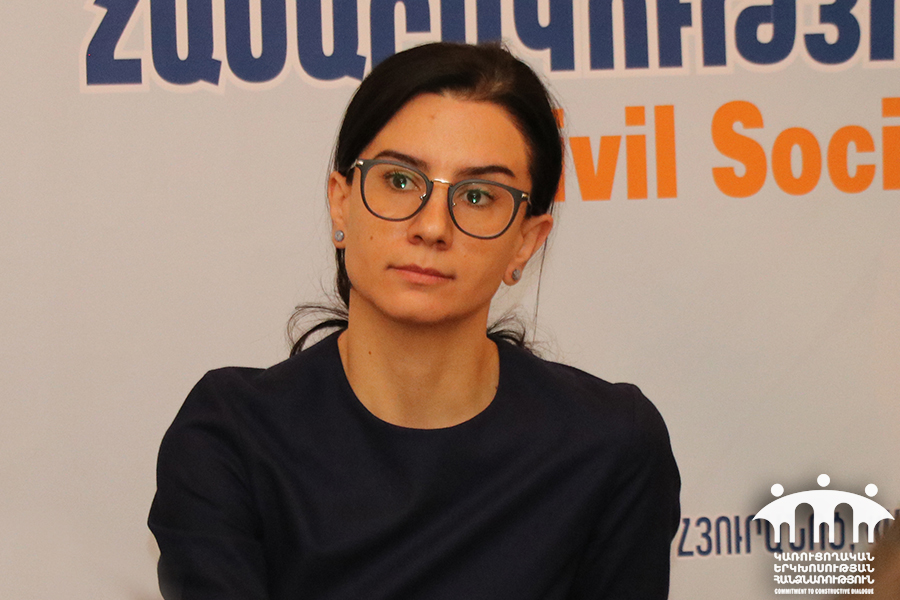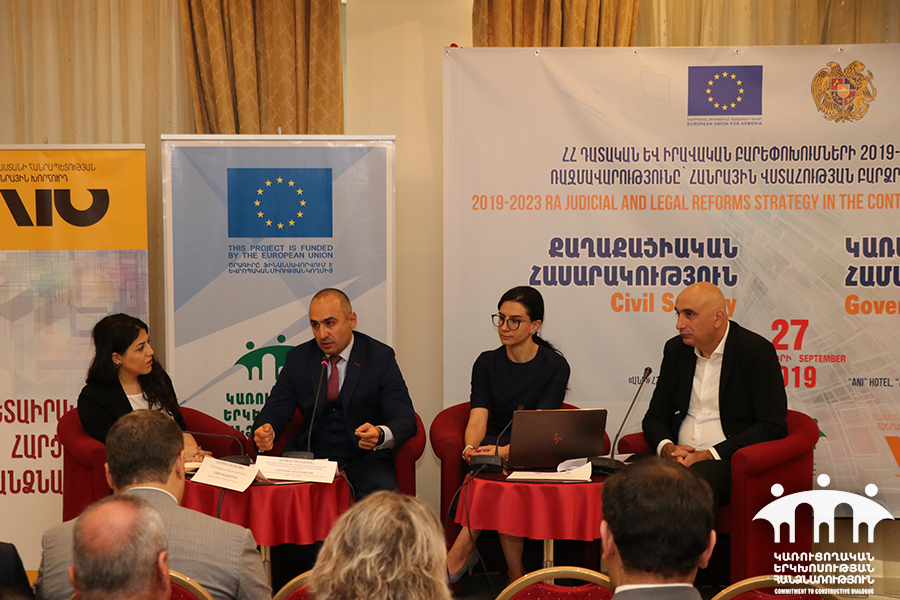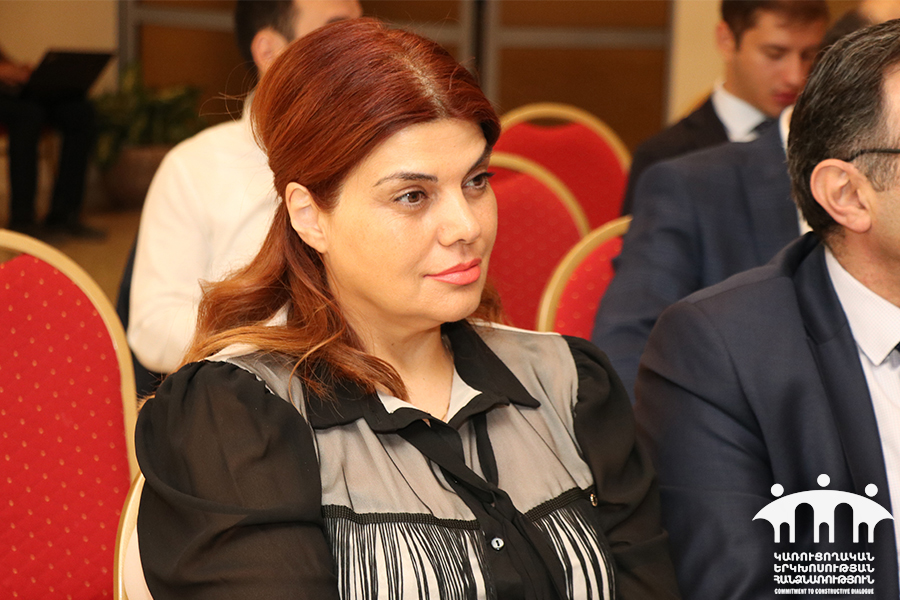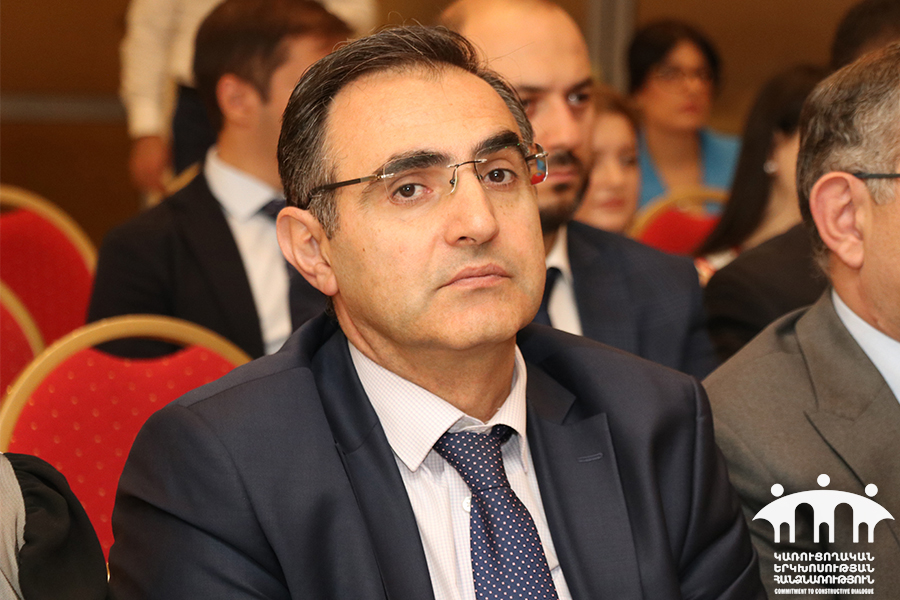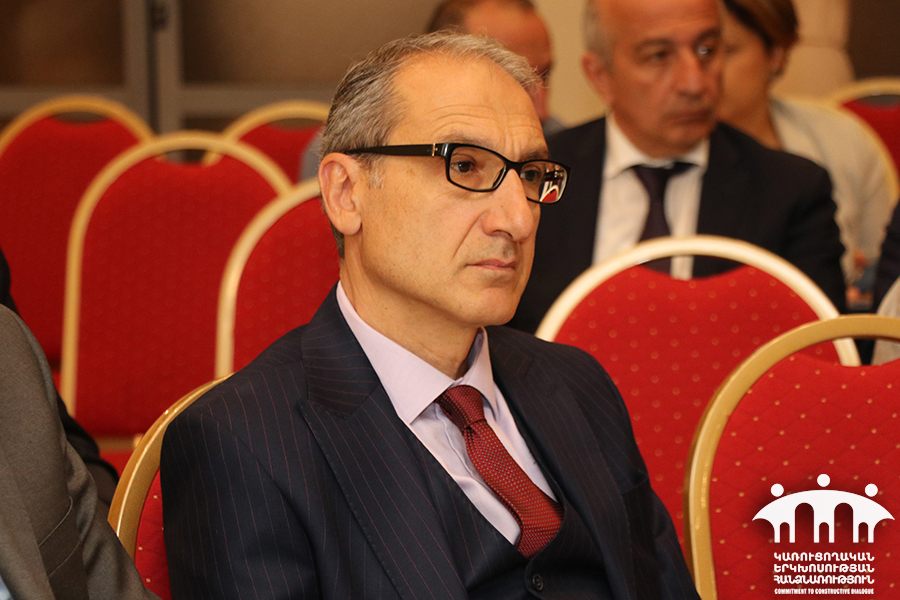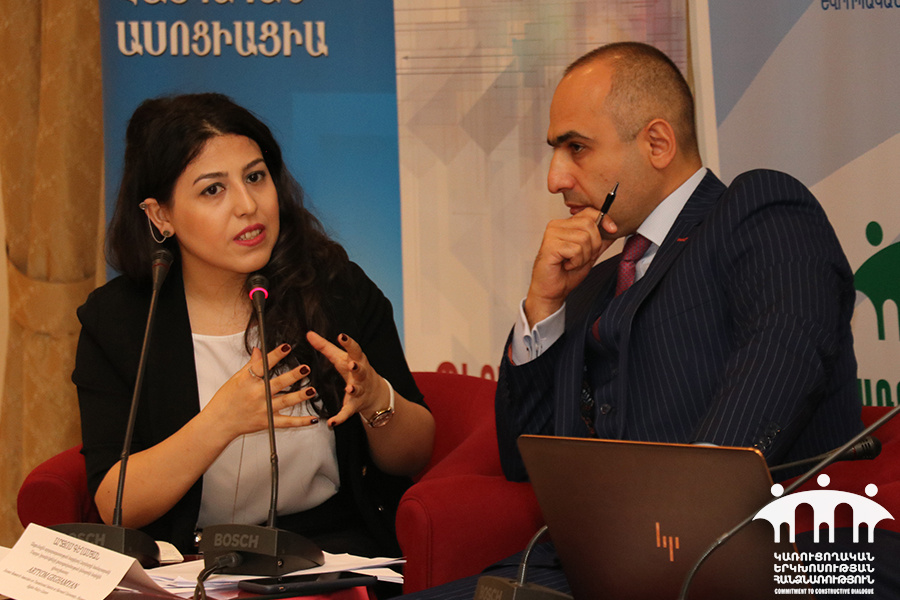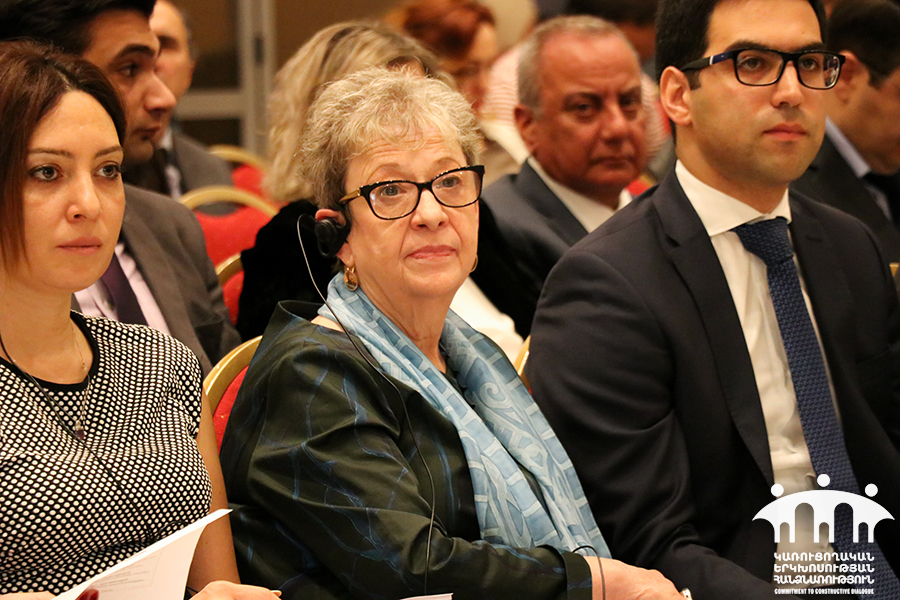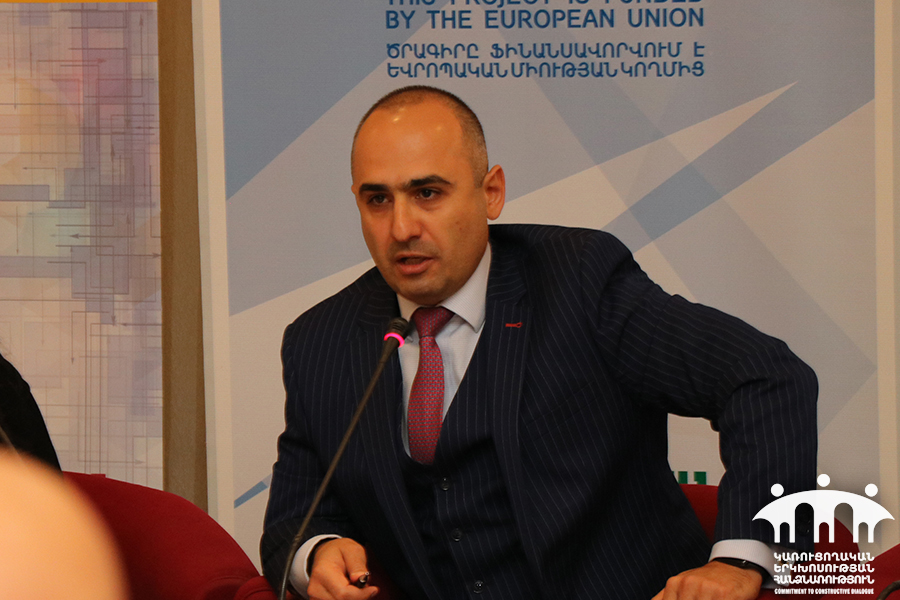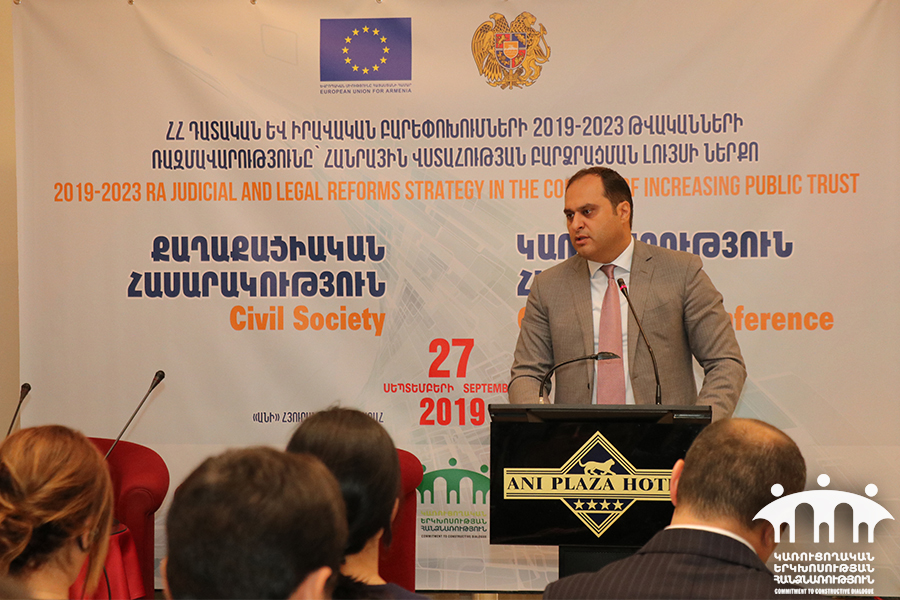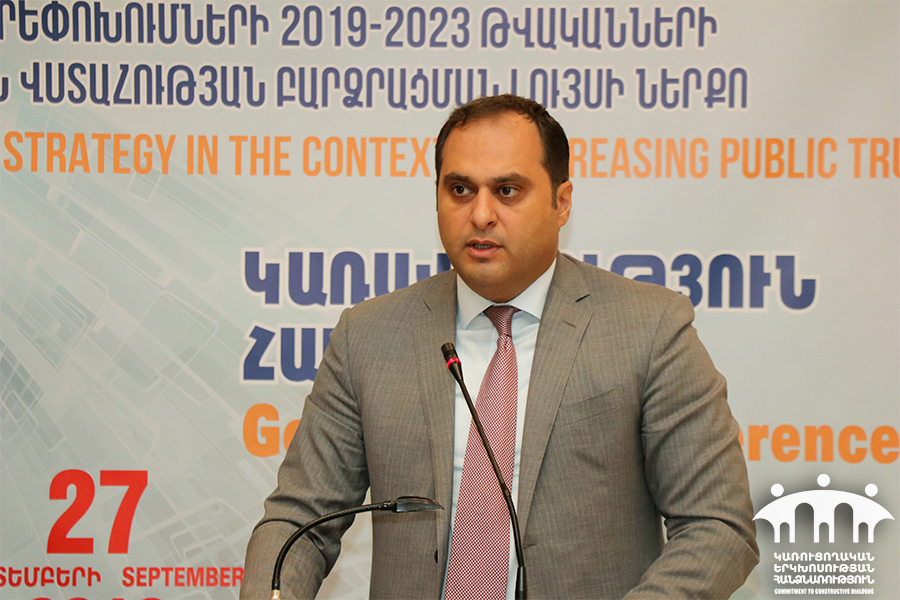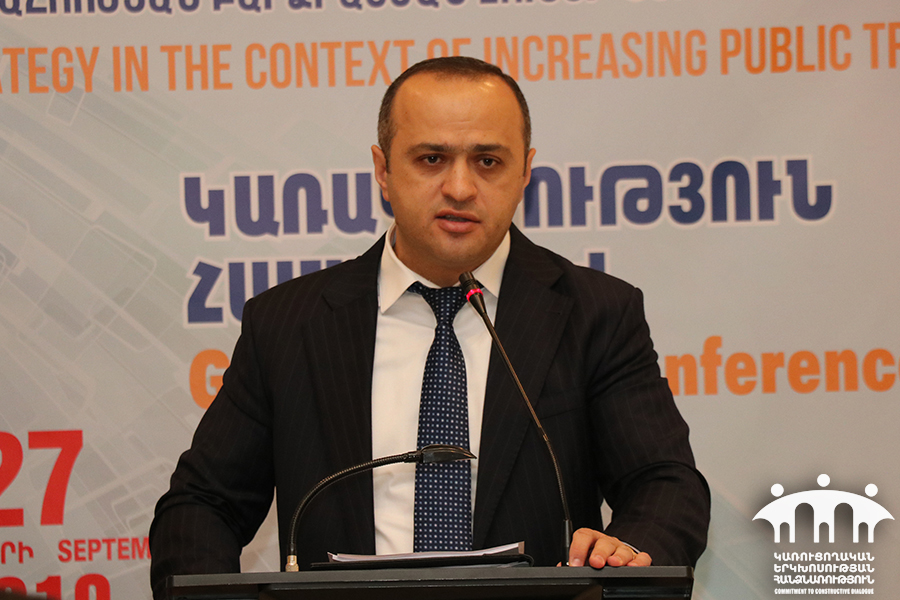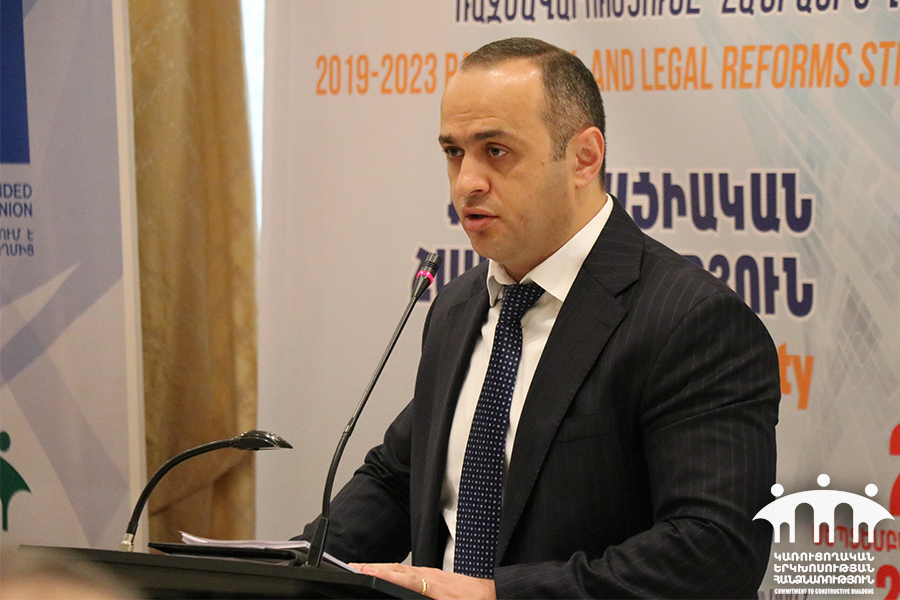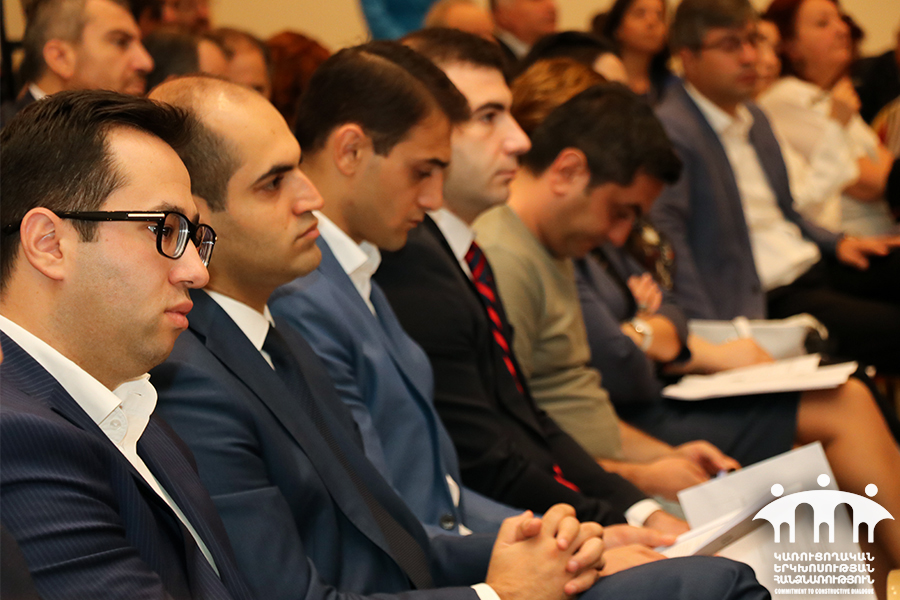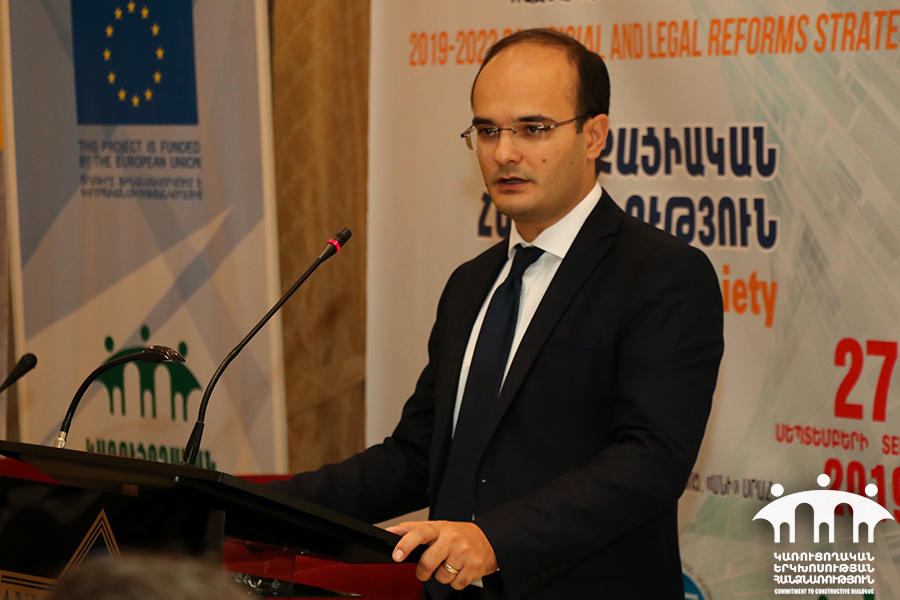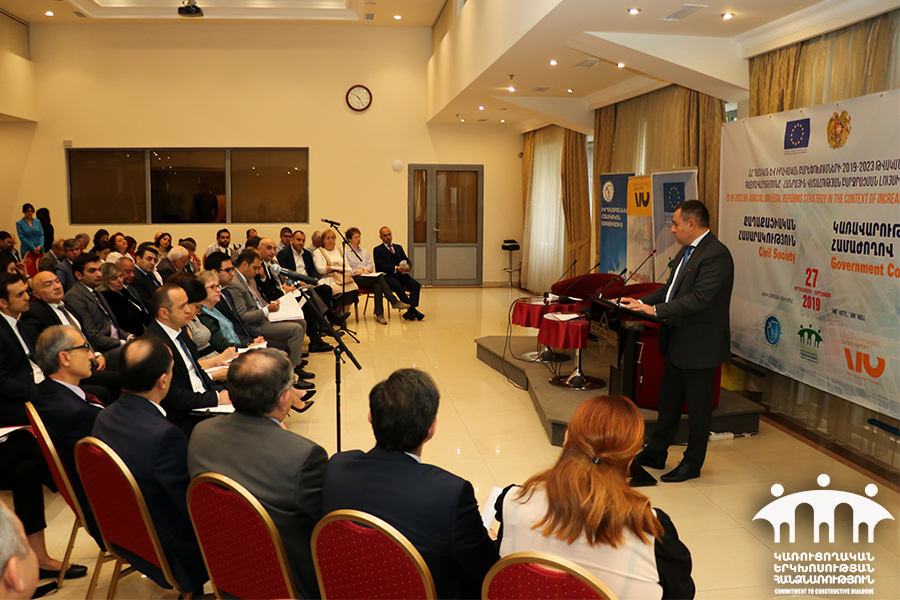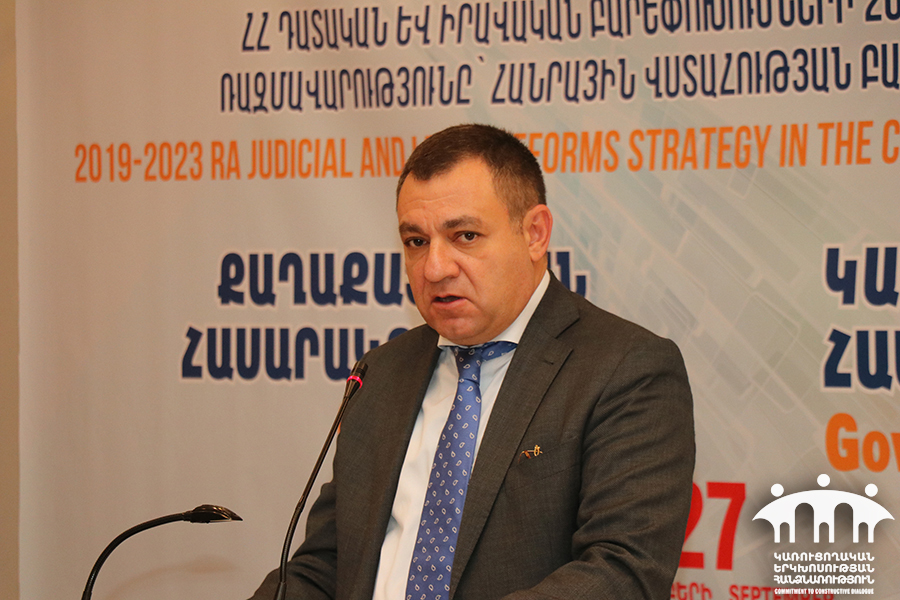On September 27, the Civil Society-Government Conference “2019-2023 RA Judicial and Legal Reforms Strategy in the Context of Increasing Public Trust” was organized within the framework of the EU-funded Commitment to Constructive Dialogue (CCD) project by the Armenian Lawyers’ Association, the Ministry of Justice of the Republic of Armenia and the Committee on State and Legal Affairs of the Public Council.
The European Union is putting a strong importance on civil society’s participation in the reform processes in Armenia, including judicial/anti-corruption spheres. Мс Andrea Wiktorin, Head of EU Delegation to Armenia, Ambassador, said this in her opening remarks, noting that the EU is closely following developments in Armenia’s judicial field, including specific provisions on Justice, Anti-corruption and Hunan rights, and is already supporting the process with expertise. “A positive trend in terms of government commitment to foster the reforms, especially with regards to anti-corruption can be especially highlighted,” Мс Andrea Wiktorin said.
It is necessary to speak frankly about the new strategy, its problems and gaps. Мр. Karen Zadoyan President of the Armenian Lawyers’ Association and Chairman of the Committee on State and Legal Affairs of the RA Public Council said at the beginning of the discussion. “We have just viewed these strategies as documents that need to be implemented, but today it is time for those strategies to be human-centred, to create value for people. For many years, large emigration from Armenia has been linked not only to social problems but also to lack of justice,” he said.
“It is impossible to implement our principle program if there is not everybody involved in this process. We may have differences in perception and opinions on many issues, but we need to have one common point of view on the general areas, and I think that these inclusive discussions with civil society representatives are aimed at that,” Мр. Rustam Badasyaн, the RA Minister of Justice said in his welcoming speech.
According to Мр. Ruben Vardazaryan, Chairman of the Supreme Judicial Council of the Republic of Armenia, the SJC attaches importance to such discussions. “We find that the policy adopted by the SJC to communicate with the public in a simple, transparent and straightforward manner corresponds to the format of today’s meeting,” he said.
“The principles and ideas underlying in the document are acceptable and understandable to everyone, including law enforcement officials,” Мр. David MelkonyanDeputy Prosecutor General said, noting that certain provisions in the document still need to be discussed.
Arsen Ayvazyan, Deputy Chairman of the Investigation Committee, noted that as compared to 2016, in the first half of 2019, the increase of criminal cases in the penitentiary institution almost doubled, which necessitated both legal and substantive changes in the legal system. “Due to this, I welcome the many points in the strategy aimed at regulating these issues,” Arsen Ayvazyan said.
“The judicial system, unlike the executive and legislative authorities, must be more stable. The constitution does not provide tools to change the judiciary officials due to political changes, as every change will have its consequences, from which ordinary citizens will be suffer,” Ara Zohrabyan, Chairman of the Chamber of Advocates of the Republic of Armenia said, noting that there are both the old and new issues in the Judicial system.
Issues related to the transitional justice toolkit, raising public confidence in the judiciary, improving the public accountability of the judiciary, and enhancing the effectiveness of the law enforcement system were discussed at the conference.
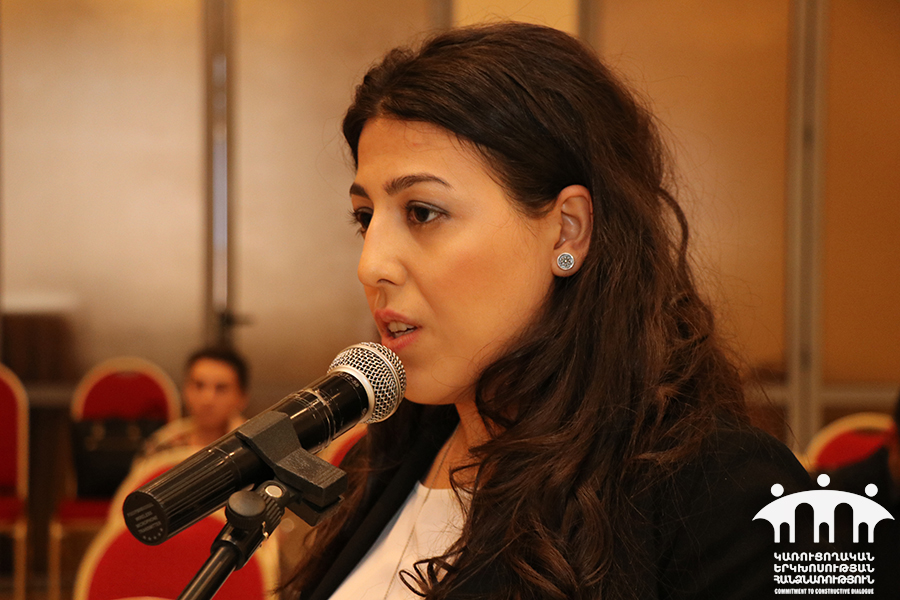
Lusine Nalbandyan
Ms Lusine Nalbandyan Lawyer-Expert of the “Commitment to Constructive Dialogue” Project was the moderator of the first thematic discussion on Transitional Justice: Toolset of Transitional Justice as a Part of the 2019-2023 RA Judicial and Legal Reforms Strategy
Deputy Minister of Justice Anna Vardapetyan presented the drafted versions of one of the transitional justice toolkits – the Formation of a fact-finding commission.
“When introducing the mechanisms of election of commission members, we have clearly stated that in addition to excluding the hierarchical or institutional links, guarantees of business independence of candidates from political influence should be provided as well. We had clearly stated that the election of commission members will be carried out by the National Assembly, providing also the opportunity for the opposition to influence decisions in the election process. These questions were probably the most sensitive in our estimation as a result of discussions in the past weeks,” Anna Vardapetyan said.
Mr. Artyom Geghamyan Former Research Associate on Transitional Justice at Harvard University, Human Rights Policy Centre introduced another transitional justice tool, Restoration of Rights, also noting whether the transitional justice mechanisms are part of conventional or non-formal judicial reform or legal reform; and whether in the methodological sense they should have been included in that document or not.
“When we started the transitional justice debate, we were trying to figure out what should be the subject of transitional justice, or maybe before that we were trying to figure out whether there is a need for transitional justice or not. I understand that the need for transitional justice among the developers of the draft is conditioned by the assumption or assertion that there have been regular gross violations of human rights in the Republic of Armenia. Yes, there have been numerous human rights violations in Armenia, they are recorded in international documents,” Artyom Geghamyan said.
“Georgia’s experience shows that there are a number of preconditions needed for transitional justice, and the first is public awareness, that is, the citizen must know what transitional justice is going to give him, and second, organizing discussions with local experts. These are lessons learned from Georgian transitional justice, and we have no right to repeat the same mistakes,” Mr. Karen Zadoyan, President of the Armenian Lawyers’ Association and Chairman of the Committee on State and Legal Affairs of the RA Public Council, “Commitment to Constructive Dialogue” Project Manager said, presenting the inevitability of responsibility toolkit of transitional justice.

Arman Babajanyan
The second thematic discussion was on Raising Trust towards the Judicial System among the Public. Mr. Arman Babajanyan, Deputy of the National Assembly, chaired the debate.
Mr. Rafik Grigoryan, the RA First Deputy Minister of Justice, touched upon the reforms of the Civil and Civil Procedure Legislation and the increase of the efficiency of Administrative Justice and Administrative Proceedings, as well as ensuring judicial independence and impartiality. He noted that the negative assessment on the judiciary, does not apply to the whole system, as there are some excellent professionals, with whom the lawyers and advocates are pleased with. “It is probably a constant process of constantly reviewing, improving the material and procedural legislation. However, some sectors in our country have advanced, some areas have improved or reforms have progressed slightly, some areas are lagging behind. Our planned document outlines actions to improve the Civil Code, developing and presenting a package of amendments to the issues raised in the newly adopted Civil Procedure Code; and we also want to promote implementation of the administrative procedure and the administrative litigation before it comes to the court, improve the administrative appeal institute,” the Deputy Minister said.
Mr. Stepan Mikayelyan, Judge of the RA Court of Cassation spoke about enhancing the efficiency of the activities of the courts and improving the public accountability of the judicial system. He noted that the public-judicial system should be strengthened first of all. “The journalist is the ear of the public, and when he tries to interview the judge after the court hearing, the court says ‘I’m sorry but I can’t.’ What should the journalist do – interview the parties? And in this case it is depending on which side the journalist shall turn to, and informs the public what they heard. I think, first of all, we need to reach a link between the judiciary and the public. There should be a high level of visibility,” the judge said.
Mr. Tigran Yegoryan, “Europe in Law Association” NGO Senior Legal Adviser, Advocate spoke about ensuring judicial independence and impartiality, creating a judicial system free from corruption and patronage. The lawyer noted: “Today, we have serious cataclysms in the process of justice in the last 10-15 years that the European Court has ruled against the state and the content of those decisions is very deeply damaging to the question of the independence of the judicial system, the myth of independence. In essence, the content of those judgments reveals to us, the activities of the judicial system under such influence, which have led us to the seizure of the state today, or have been an instrument in raising the efficiency seizure of the state.”

Marat Atovmyan
The third thematic discussion was about Increasing the Efficiency of the Law Enforcement System, moderated by Mr. Marat Atovmyan, a member of the RA Public Council, Advocate.
Mr. Grigor Amiryan, Chief Prosecutor of the Department for Charge Defense and Appealing of Judicial Acts of the Prosecutor’s Office of the Republic of Armenia, touched upon the reforms of the Prosecutor’s Office and mentioned the details of working with law enforcement agencies and expert bodies. “The strategy also speaks of a judge’s assistant. I would prefer that if it were maintained, it would also be referred to the prosecution and investigative bodies, and the assistant institute would also be introduced for the body of inquiry and prosecution. I assure you, this is not an end in itself, the statistics, the workload are present, and this is an additional impetus, a positive function in terms of organization of the proper and quality work,” Senior Prosecutor Grigor Amiryan said.
Mr. Arsen Ayvazyan, Deputy Chairman of the RA Investigation Committee presented reforms of the system. He noted that as compared with 2016 when about 20 thousand criminal cases were investigated; in the first half of 2019 already 18.5 thousand criminal cases were investigated. This volume suggests that there should be structural and salary changes. “If we mention in the judiciary clauses that the salaries of judges should be reviewed, social wages should be revised because criminal cases have grown in number to the same number of judges and we emphasize that salaries should be increased, unfortunately, the prosecutor’s office or the prosecutor’s office does not have the same provisions in repository clauses. This is a chain. Like the Christmas tree light chain, failure of one light affects the others. It cannot work or not work effectively for one body,” Arsen Ayvazyan said.
Mr. Avetik Ishkhanyan, President of the Helsinki Committee of Armenia, noted that many people in Armenia refer to the Constitution saying that power belongs to the people. “Frankly speaking, I disagree with that. What does the power mean to the people? It is incomprehensible to me. In my opinion, power belongs not to 100% of the whole nation. Democracy is when power is formed by the majority of the people taking part in the elections. Why, because the power belongs to the people and the people are 100 percent, and those who did not participate or vote for another force, does it mean that the power does not belong to them any longer? Democracy is the power formed by the majority. The judiciary is also part of the government, now the judiciary must be the power of the people, as it is written in the Constitution? Majority of which people?” He also mentioned the “creation”, influence and management of the judiciary by the authorities over the years.
Mr. Artyom Mesropyan, Coordinator of Justice and Related Sectors of CCD Project, Lawyer and Ms Suzanna Soghomonyan, CSO-Government Dialogue Coordinator of CCD Project, Advocate, summarized the discussion and collected the proposals for submission to the Ministry of Justice. Artyom Mesropyan noted that the main shortcoming of the strategies so far was that it did not substantiate what this or that measure were needed for, or what the starting point would be in the near future.
The “Commitment to Constructive Dialogue” project is implemented with the financial support of the European Union by a Consortium of civil society organisations, which are the Armenian Lawyers’ Association (lead organisation), Agora Central Europe (NGO based in the Czech Republic), the Armenian Centre for Democratic Education-CIVITAS, the International Centre for Human Development, the SME Cooperation Association and the Union of Communities of Armenia.
The project aims to enhance the influence of civil society organisations (CSOs) and CSO coalitions/networks on public policies in Armenia. This will allow organisations that are already working in sectoral coalitions to access additional resources, new groups of civil society experts to come together and encourage place their causes on the local and national policy agenda, to identify common concerns and priorities and approach government bodies with constructive and strategic policy engagement initiatives.
The project has provided sub-grants to 9 CSO coalitions that are directed to the development of public policies and will have tangible results in the 9 target sectors of the project: Justice, Human Rights, Public Finance Management, Business, Education, Social Sector (social inclusion of children with disabilities), Agriculture, Economy and Energy. 29 small sub-grants have also been allocated to CSOs.

